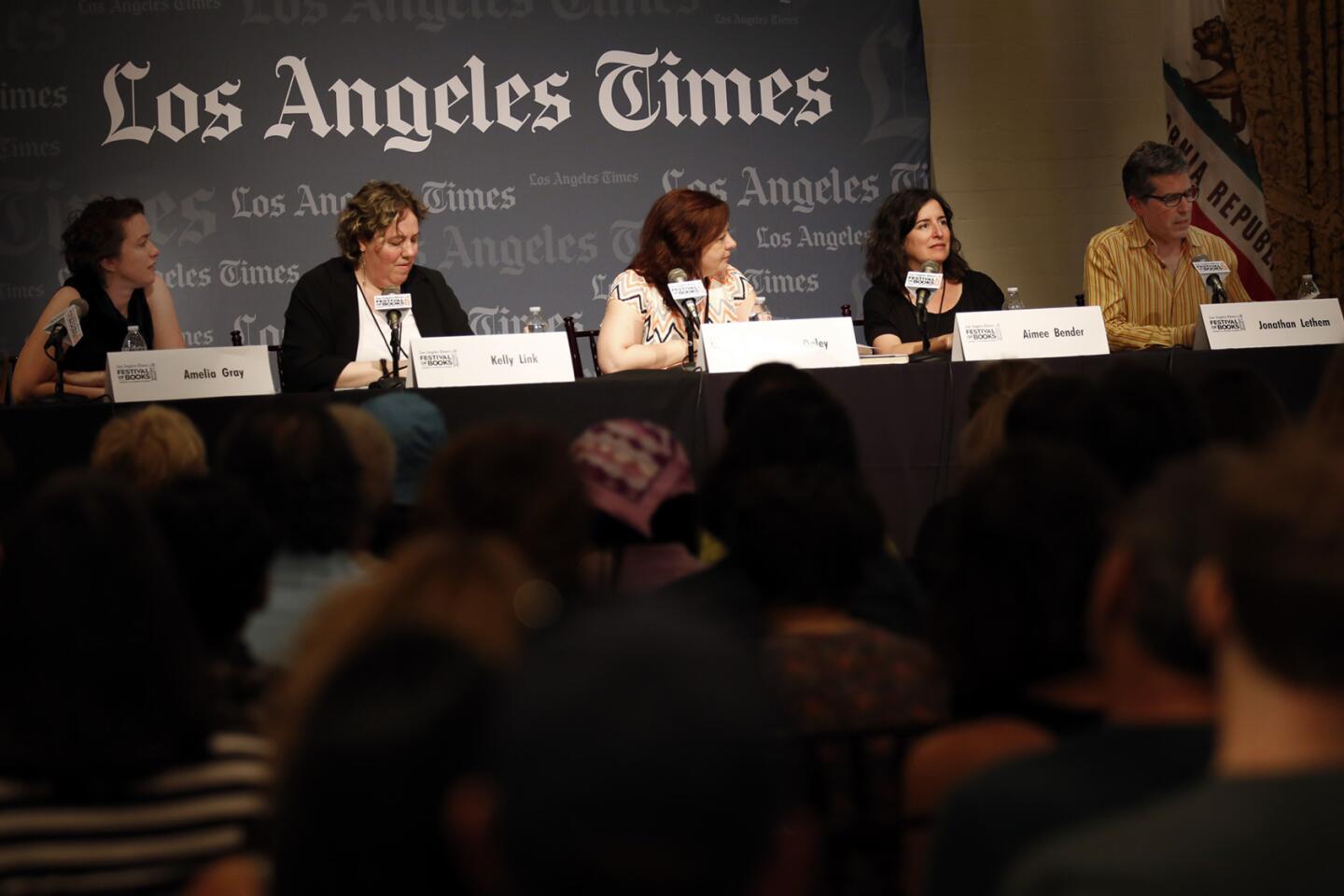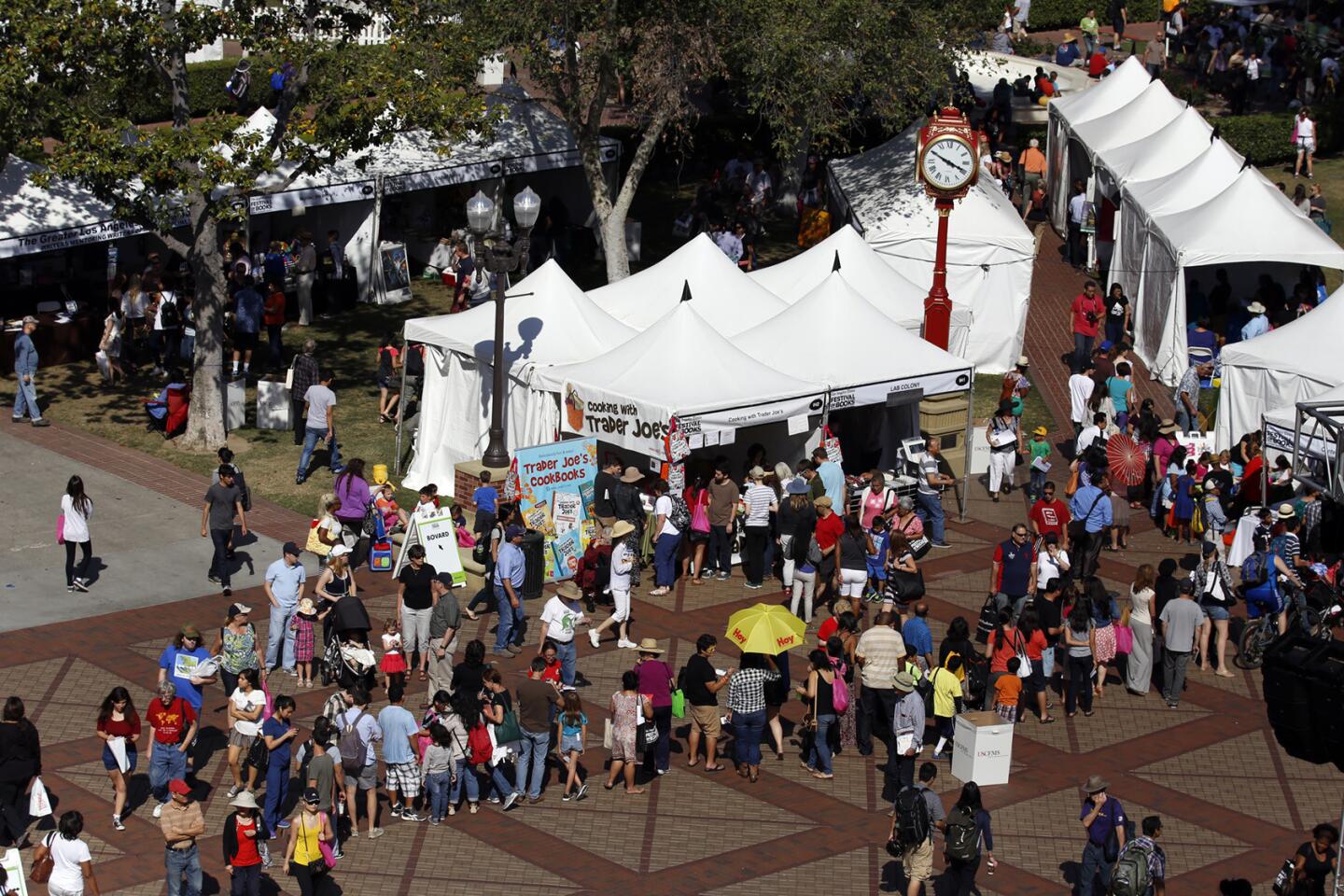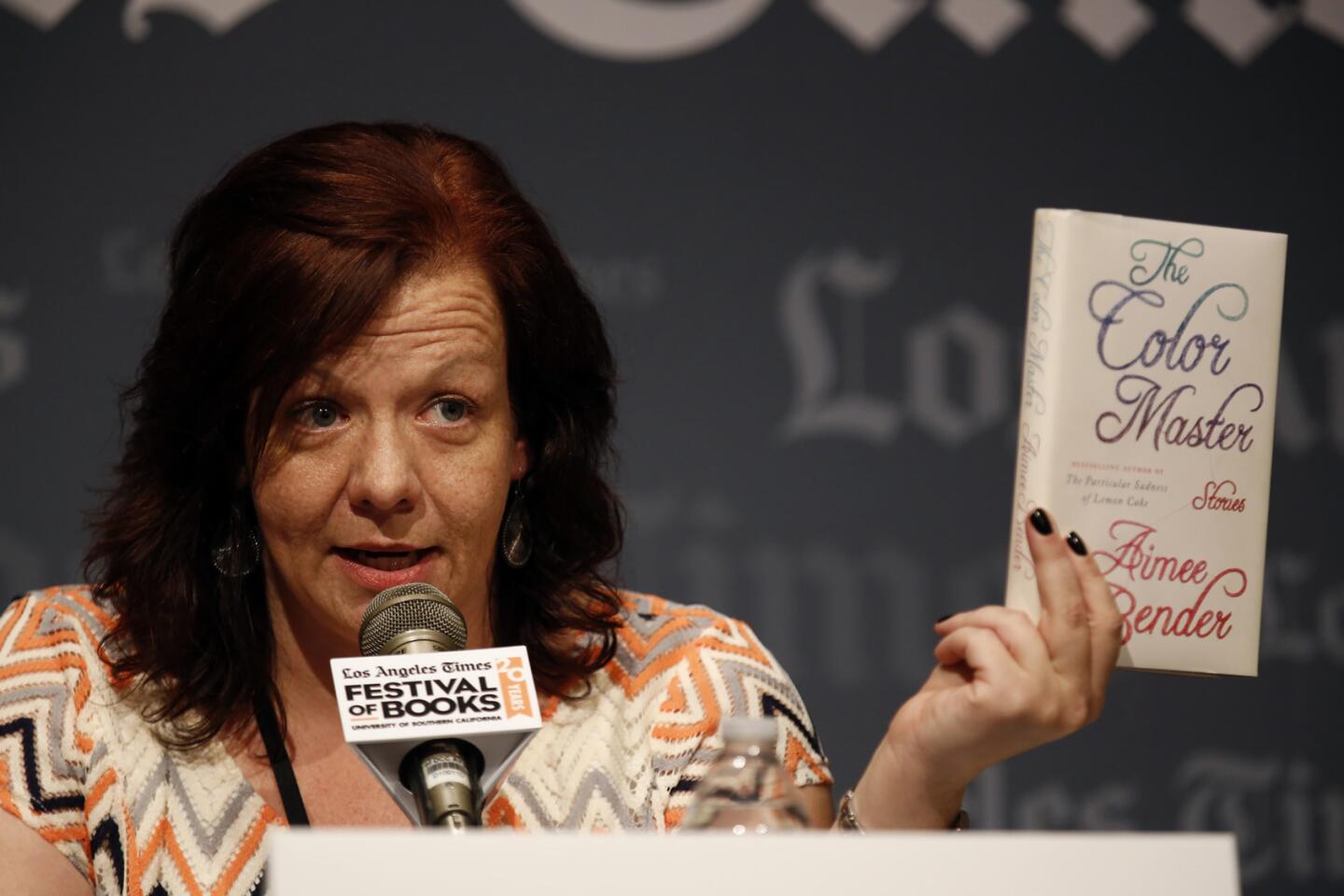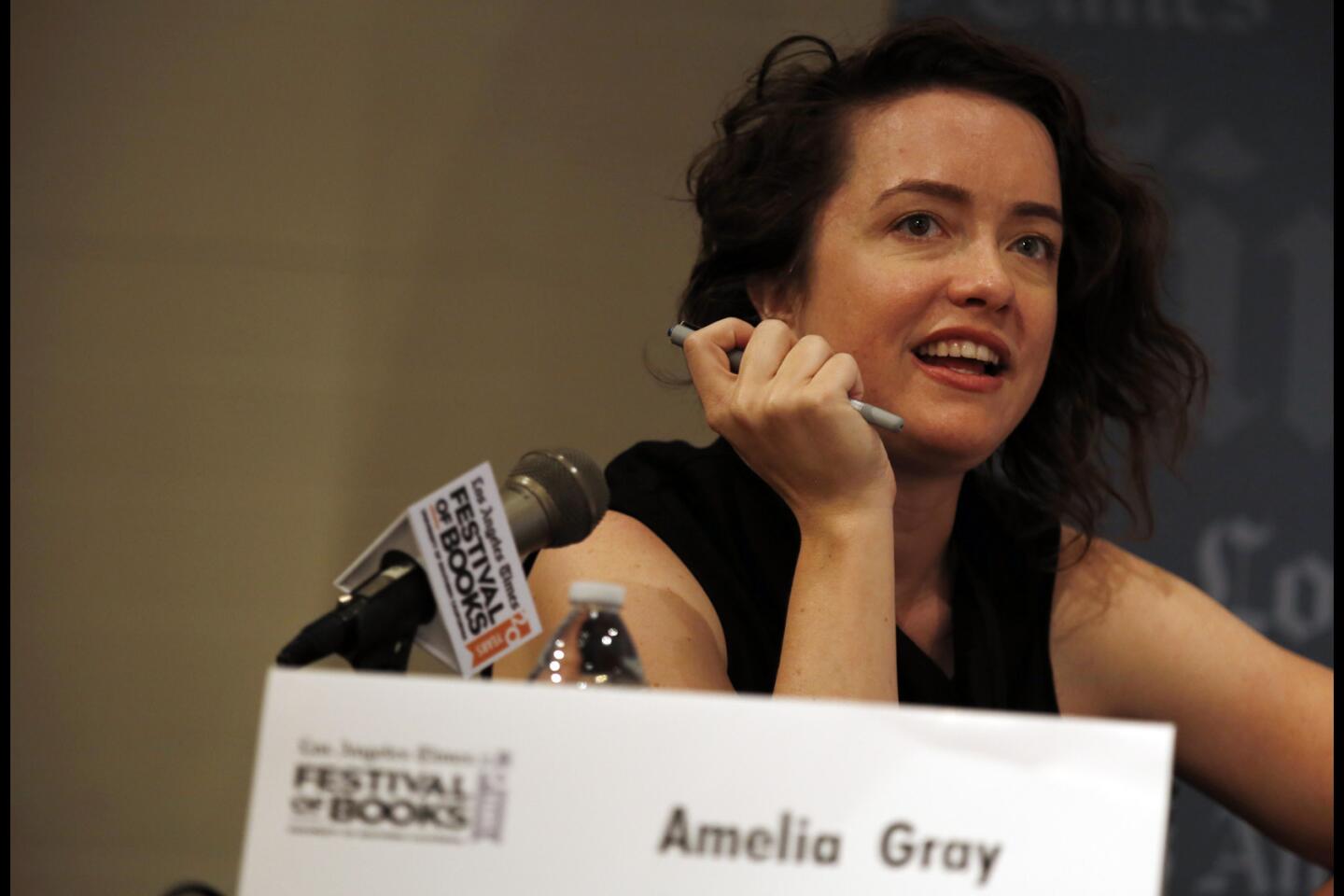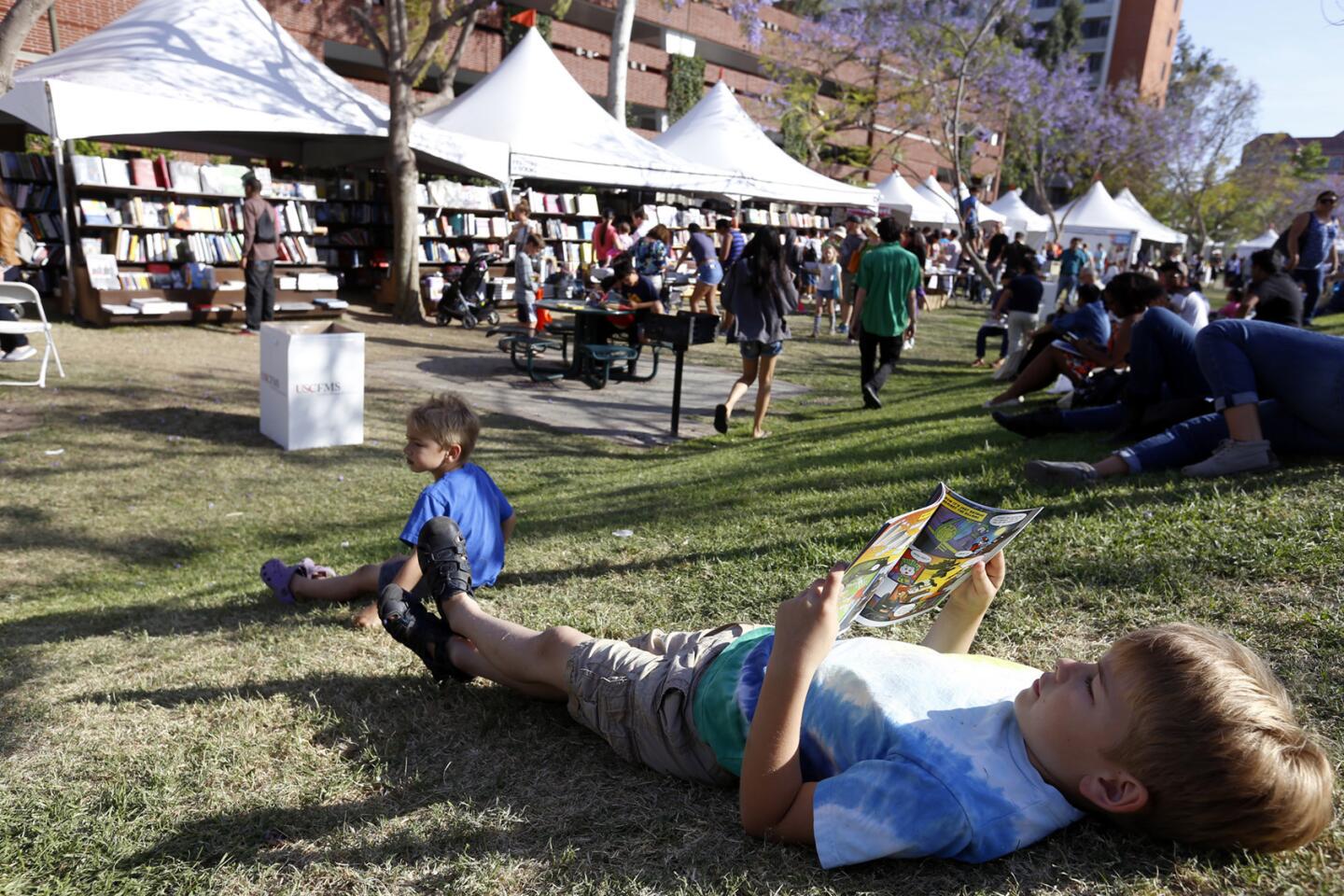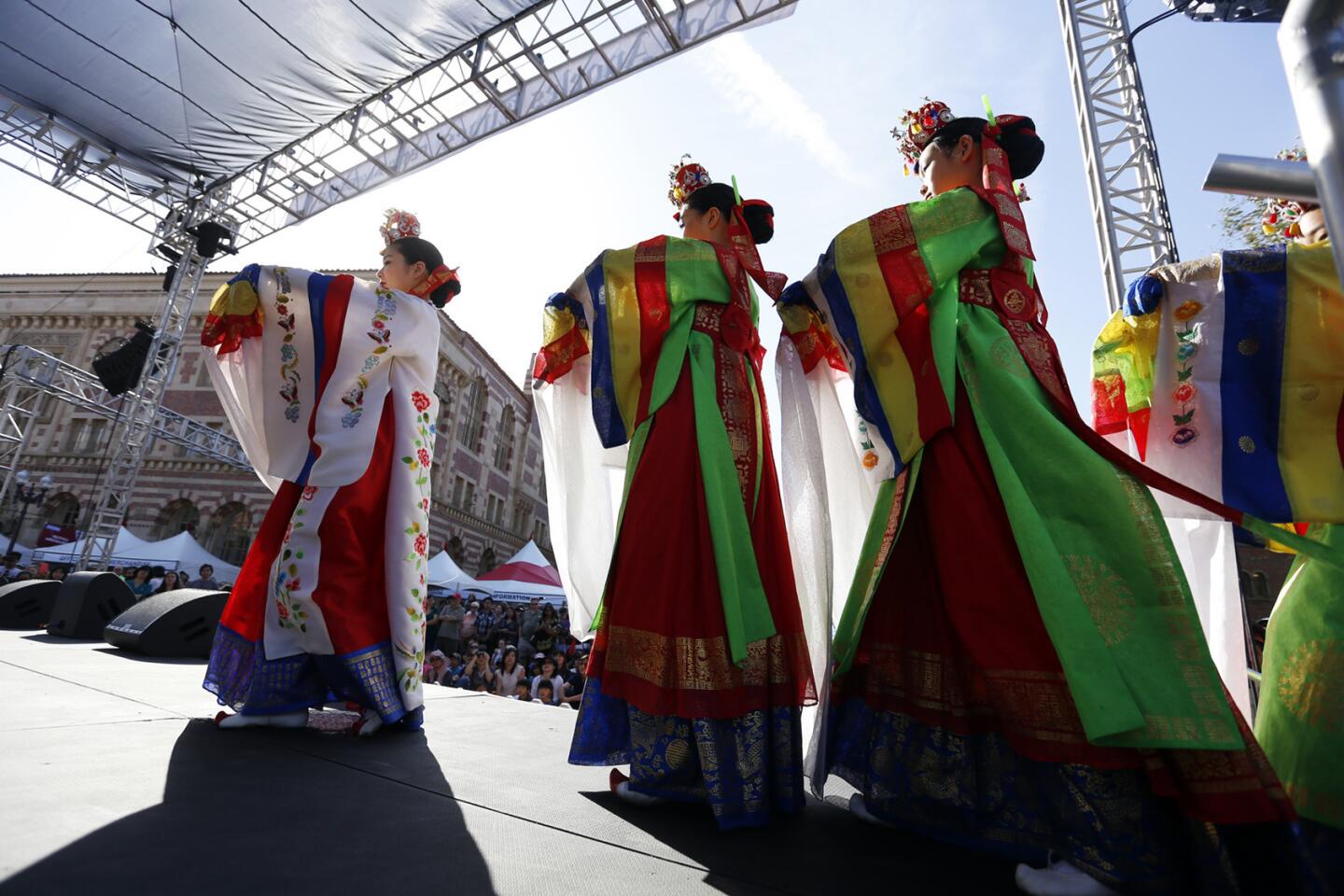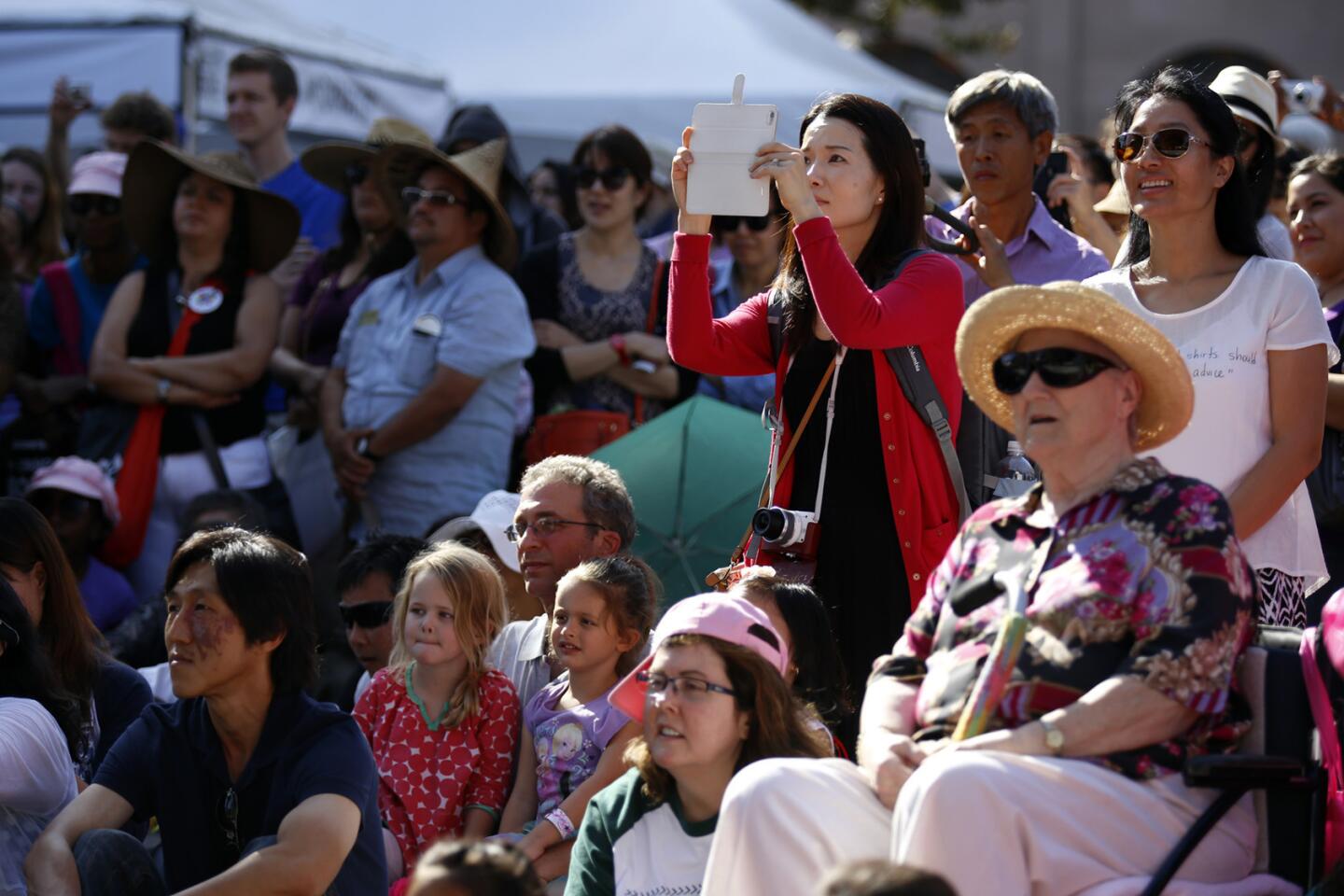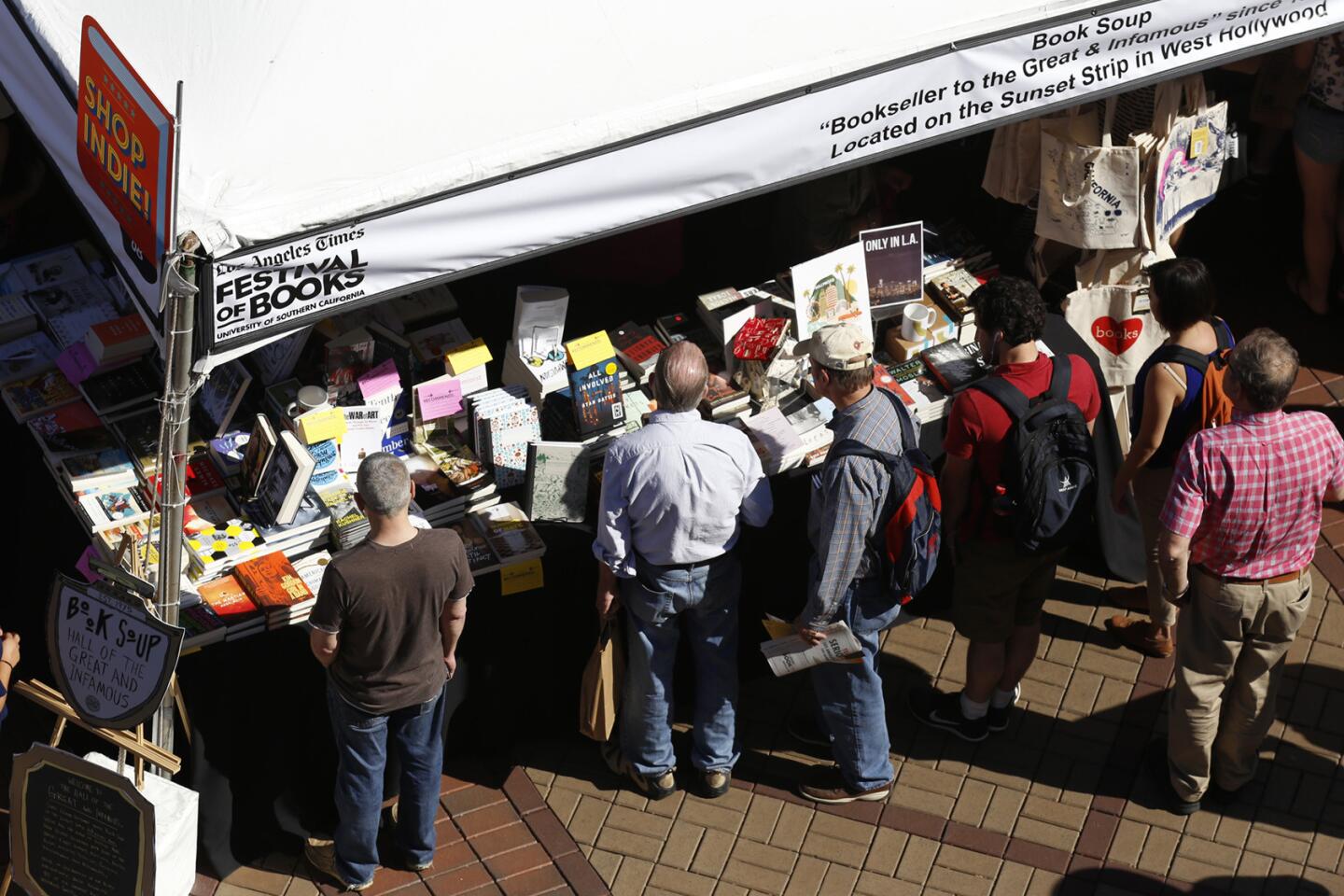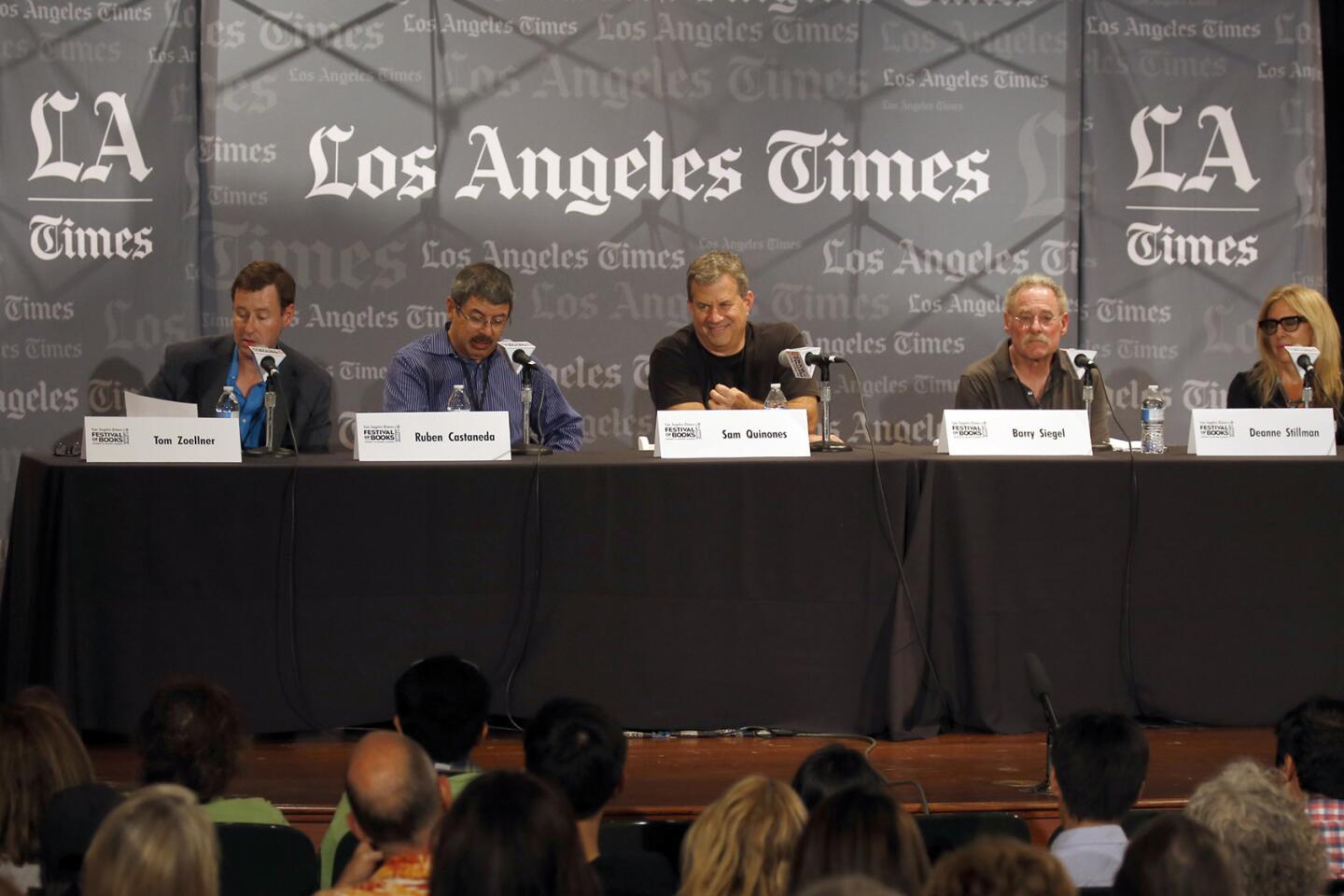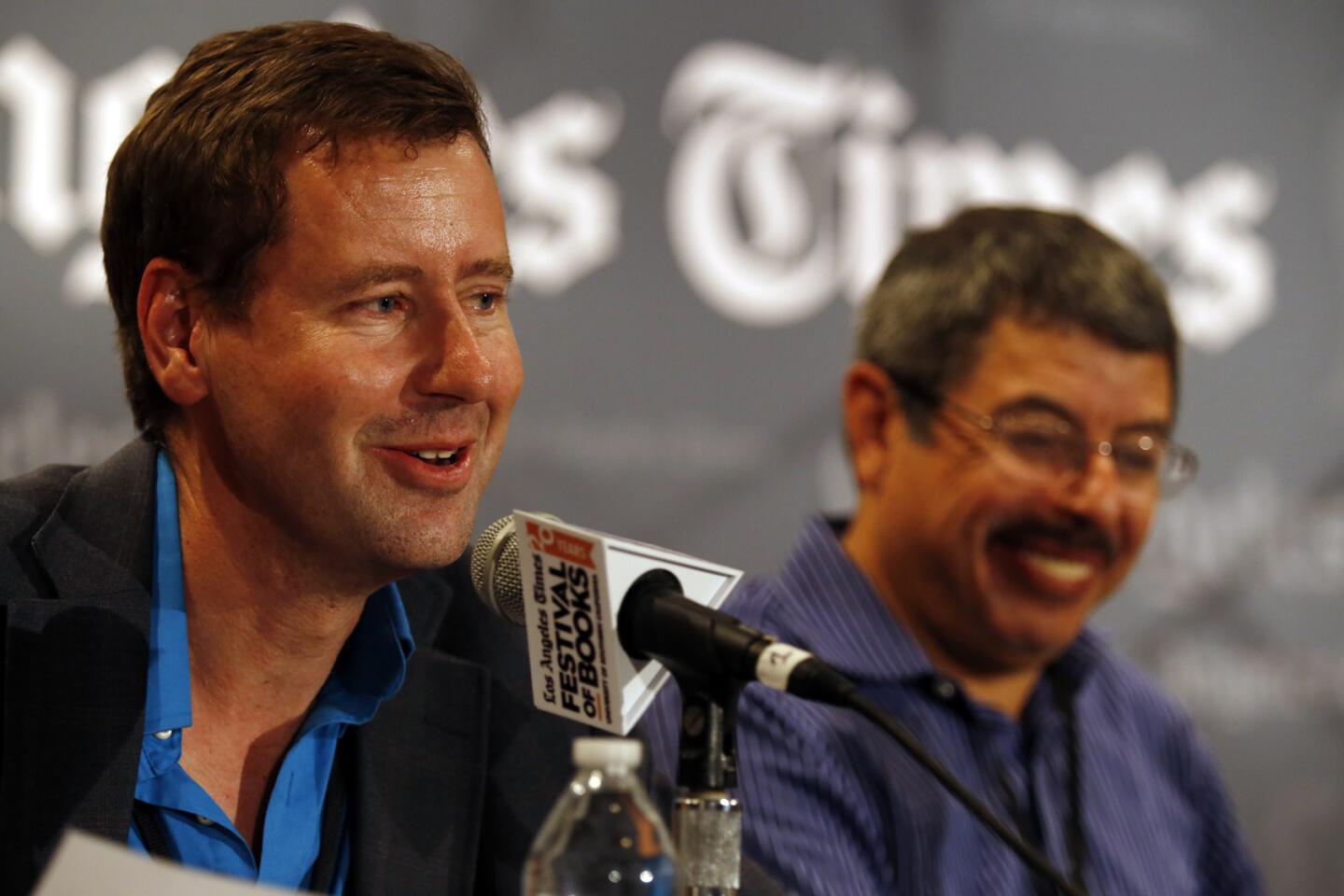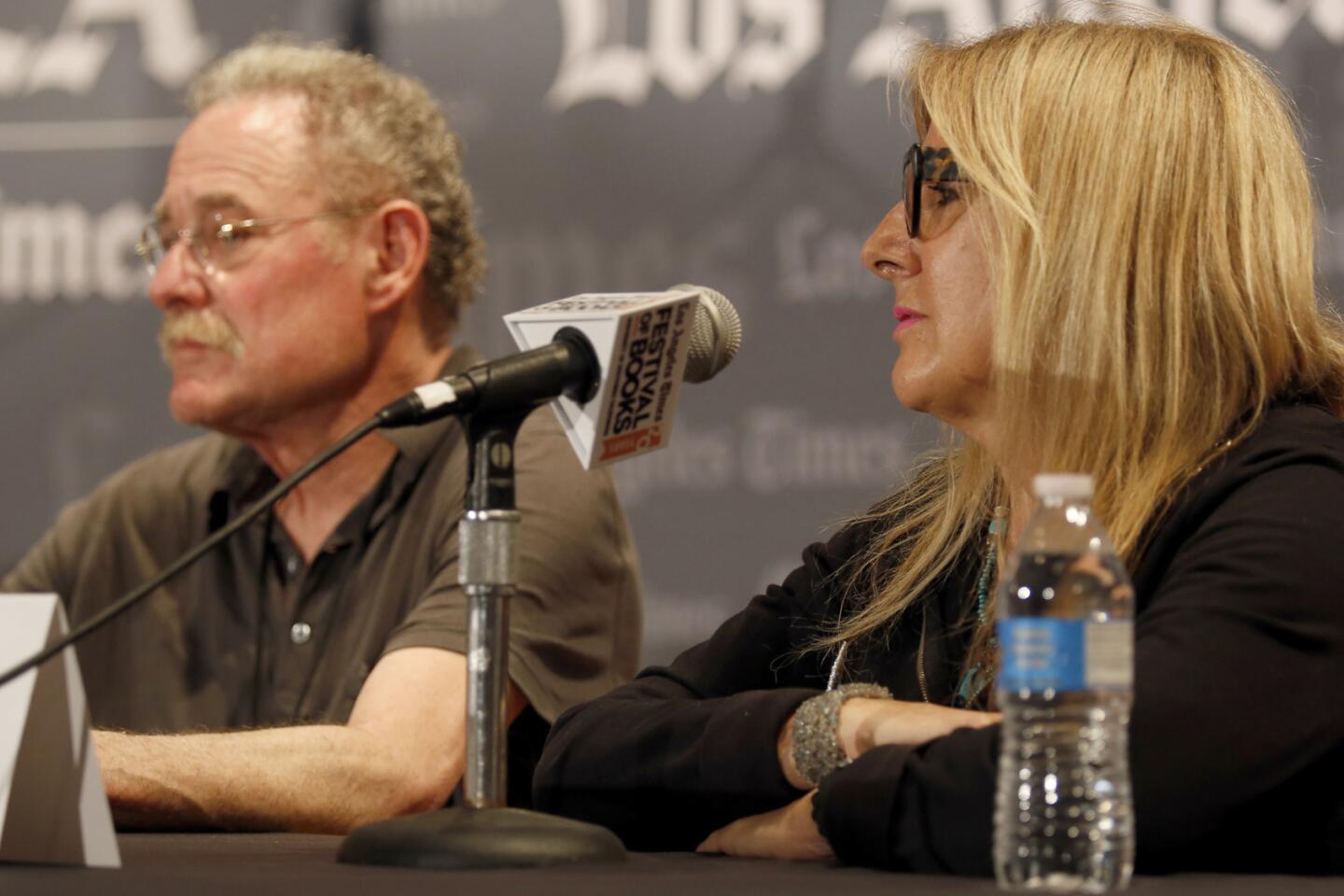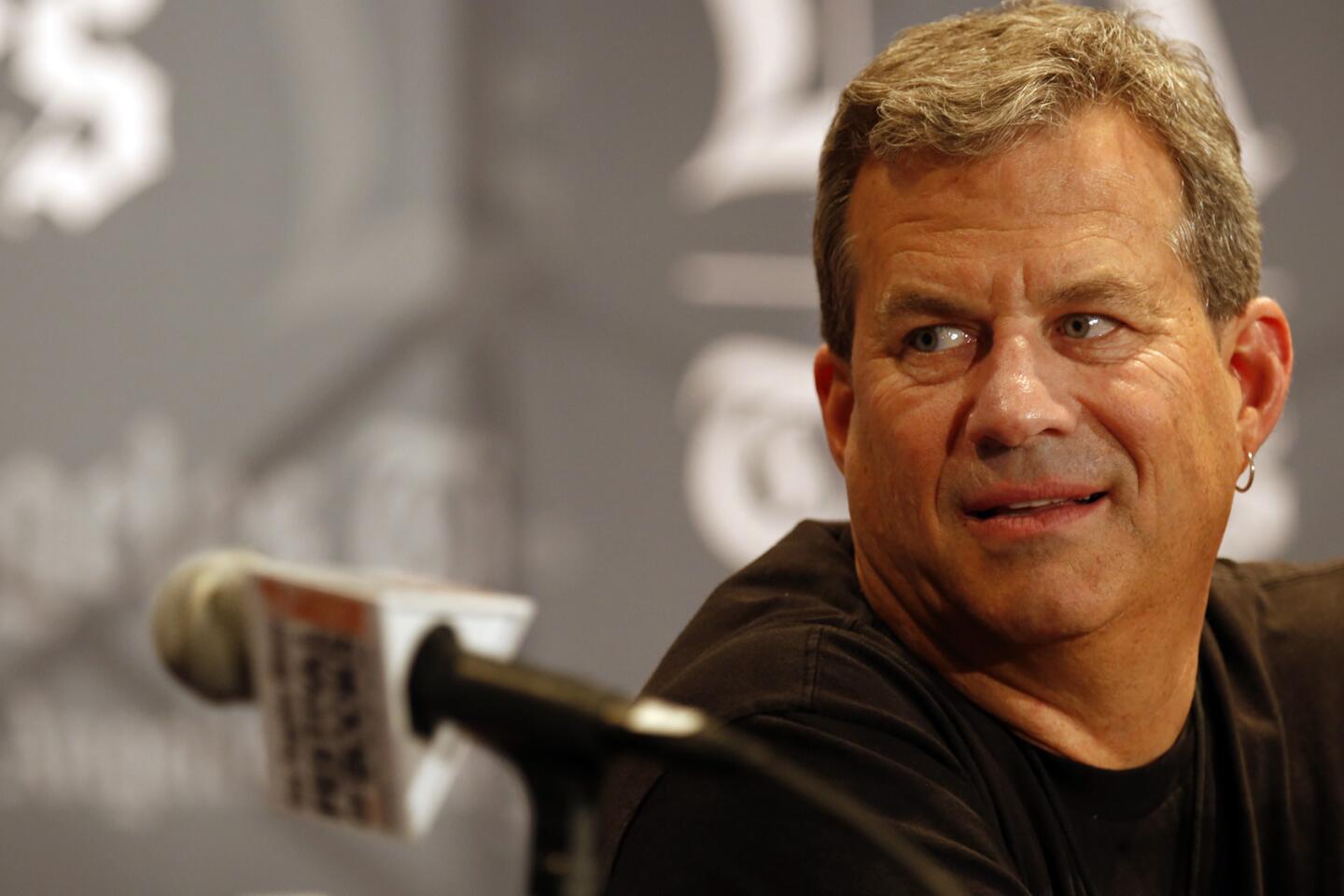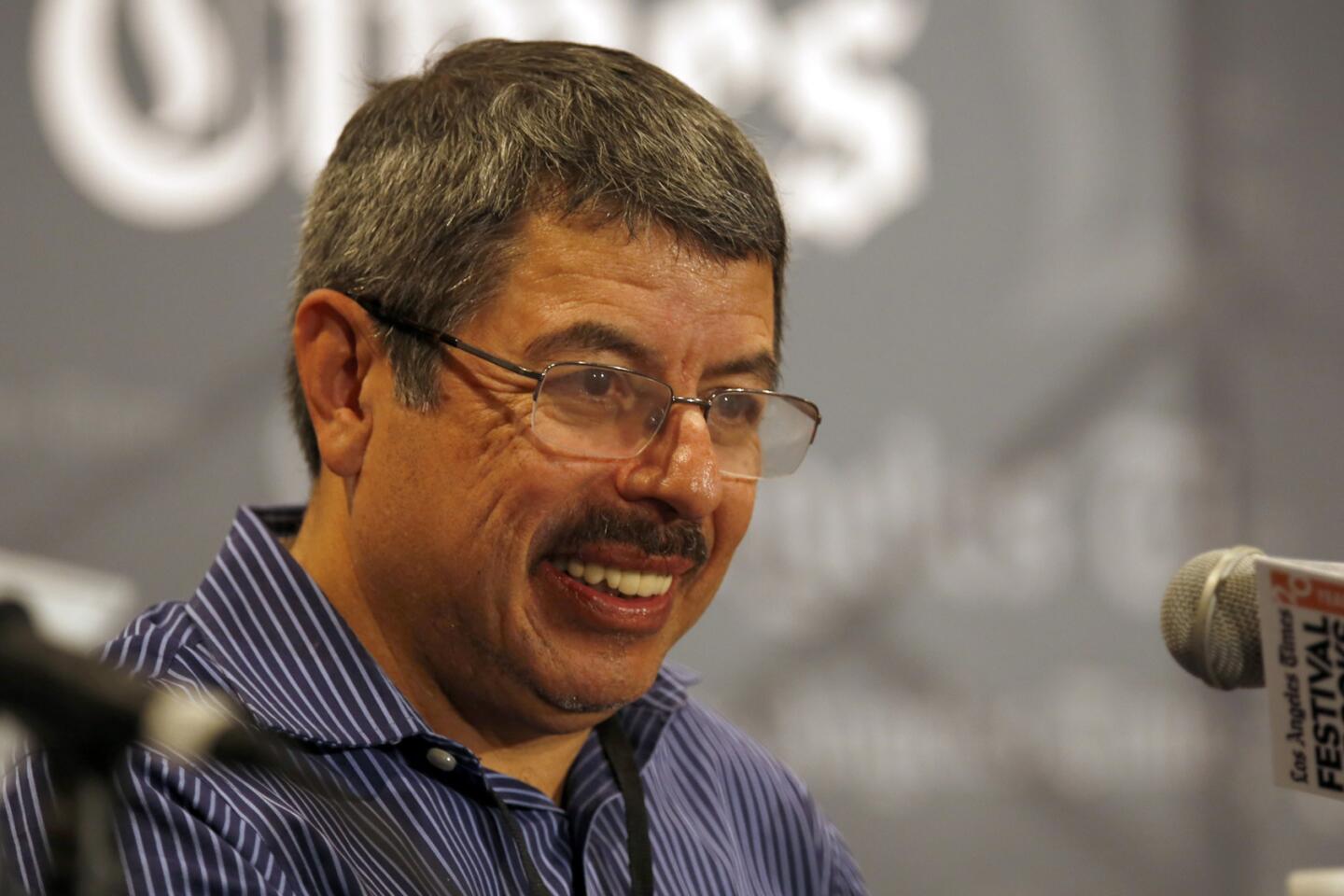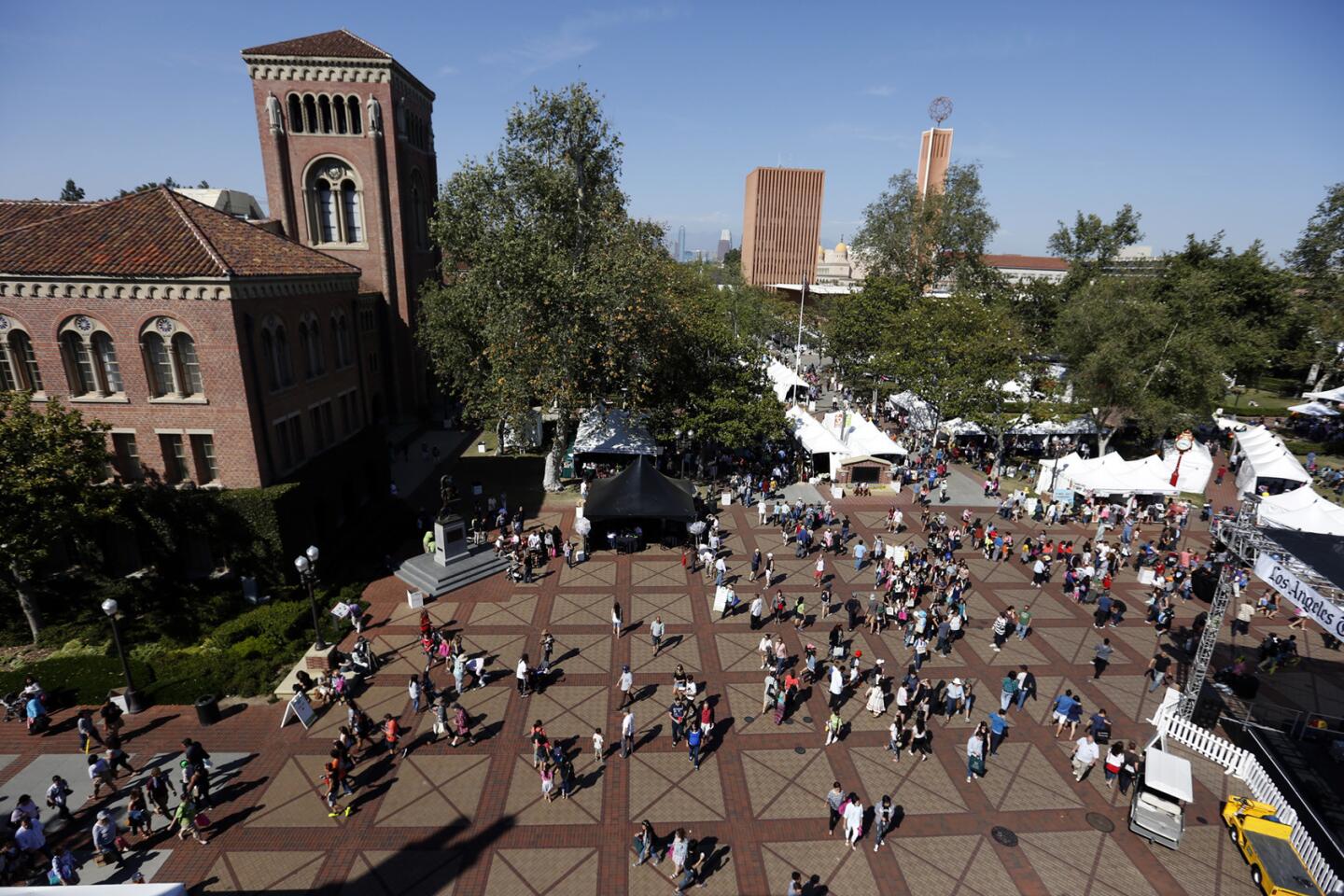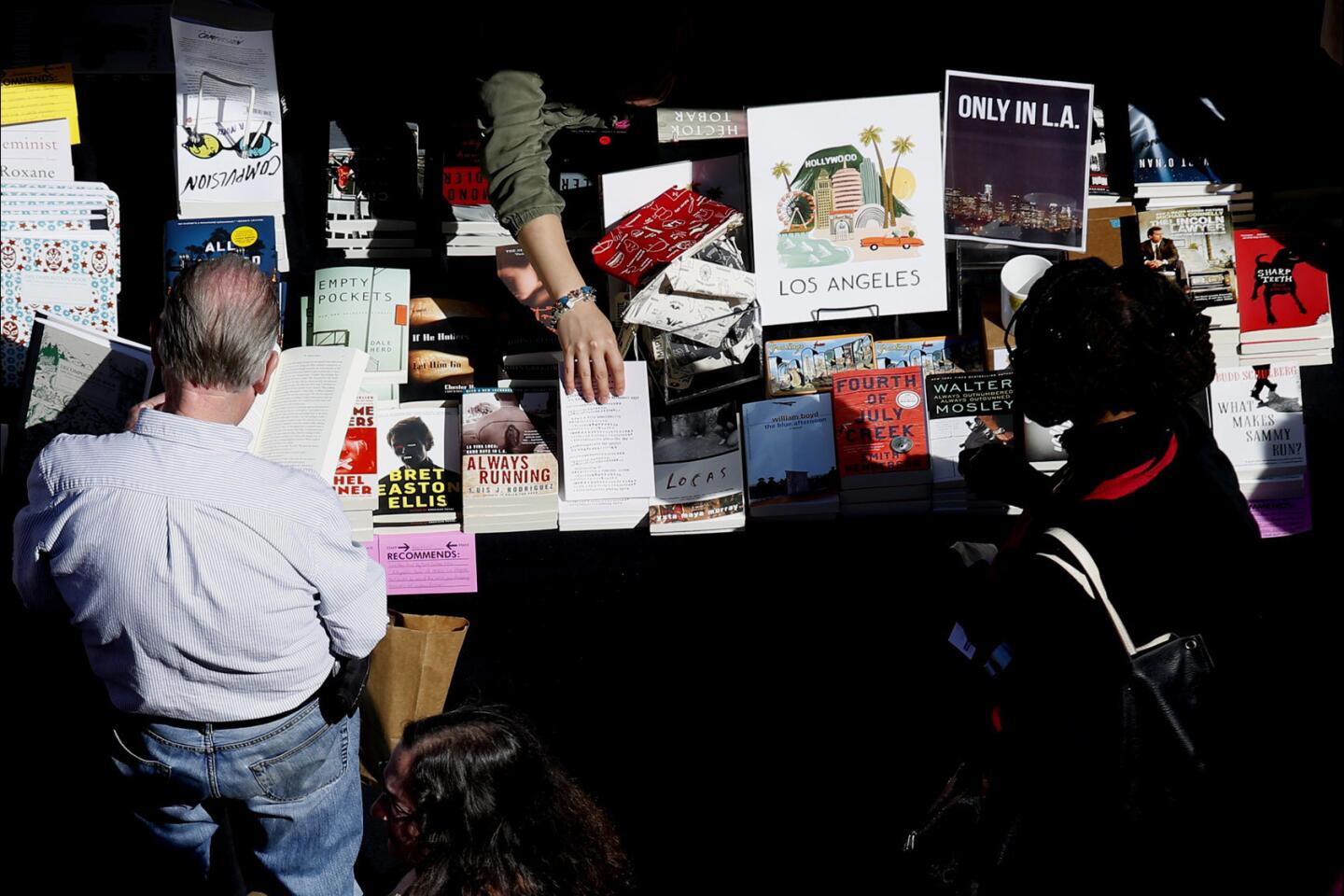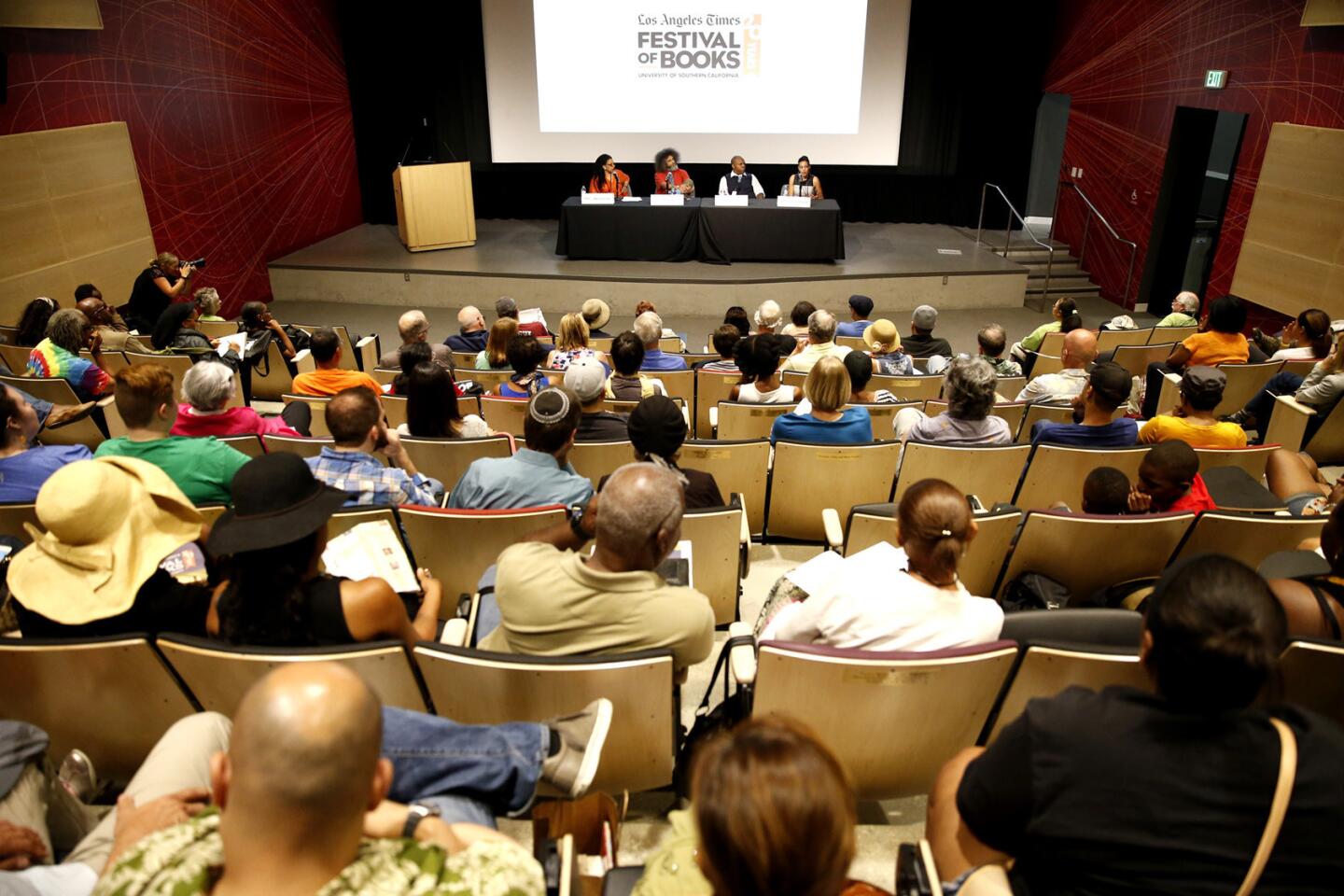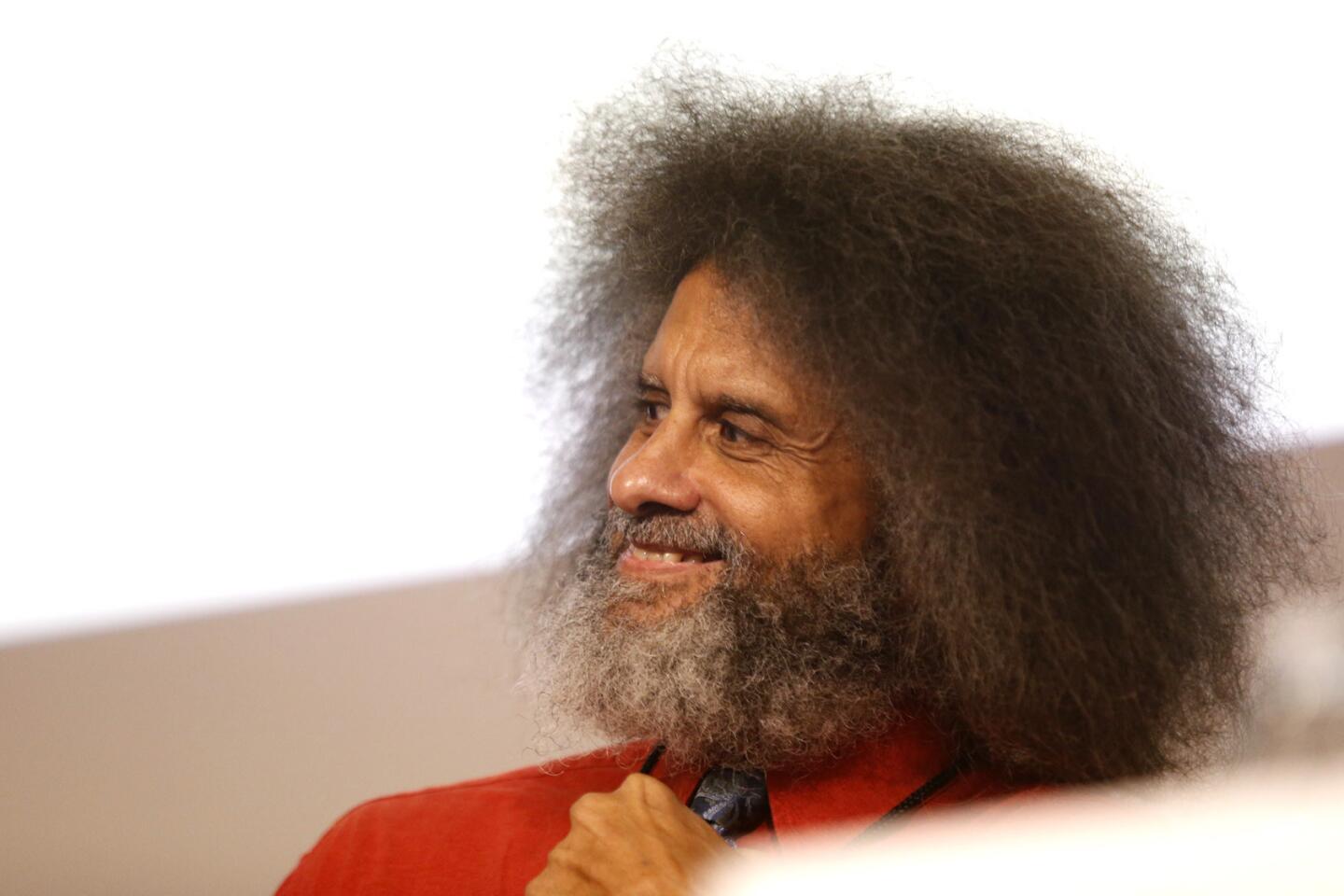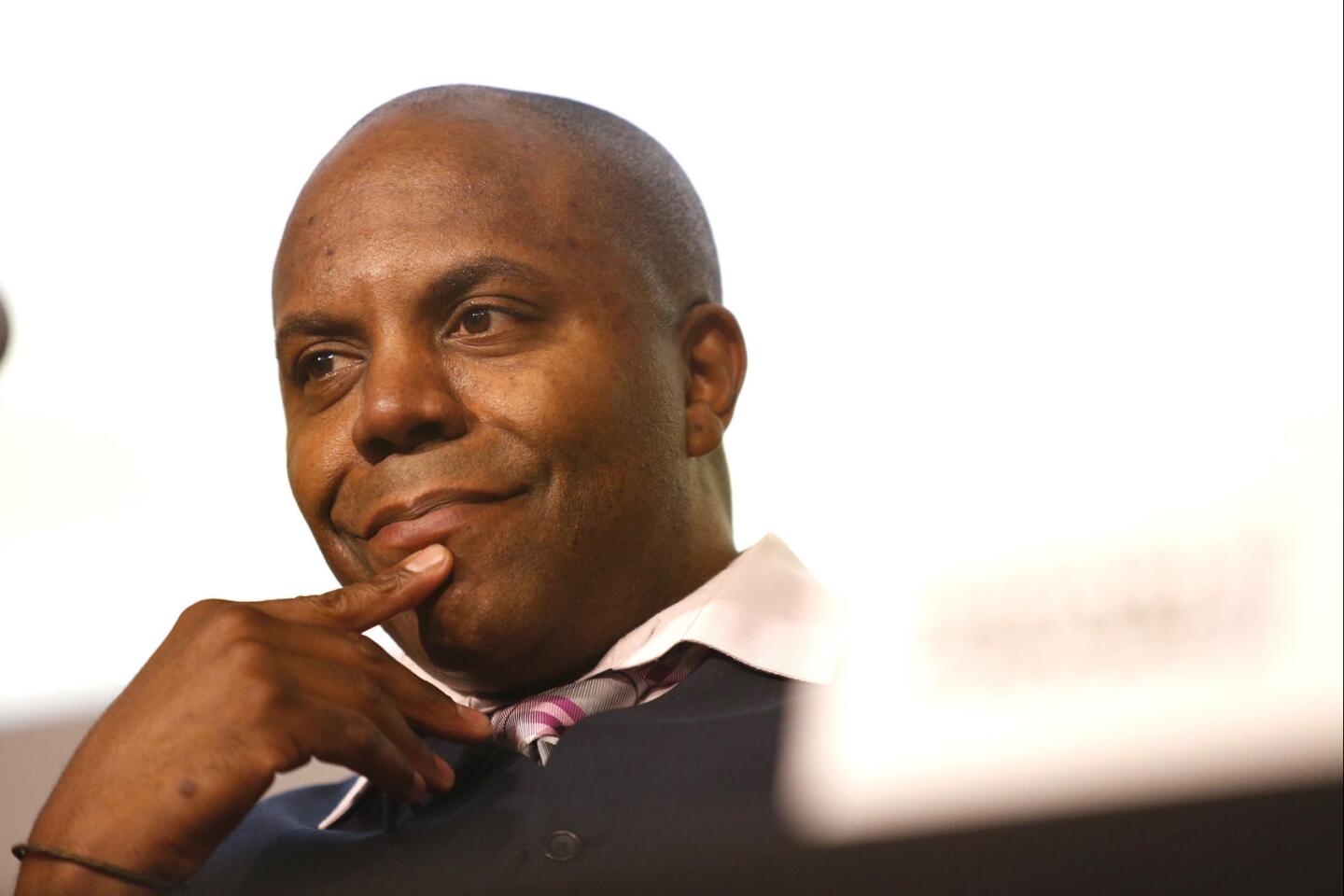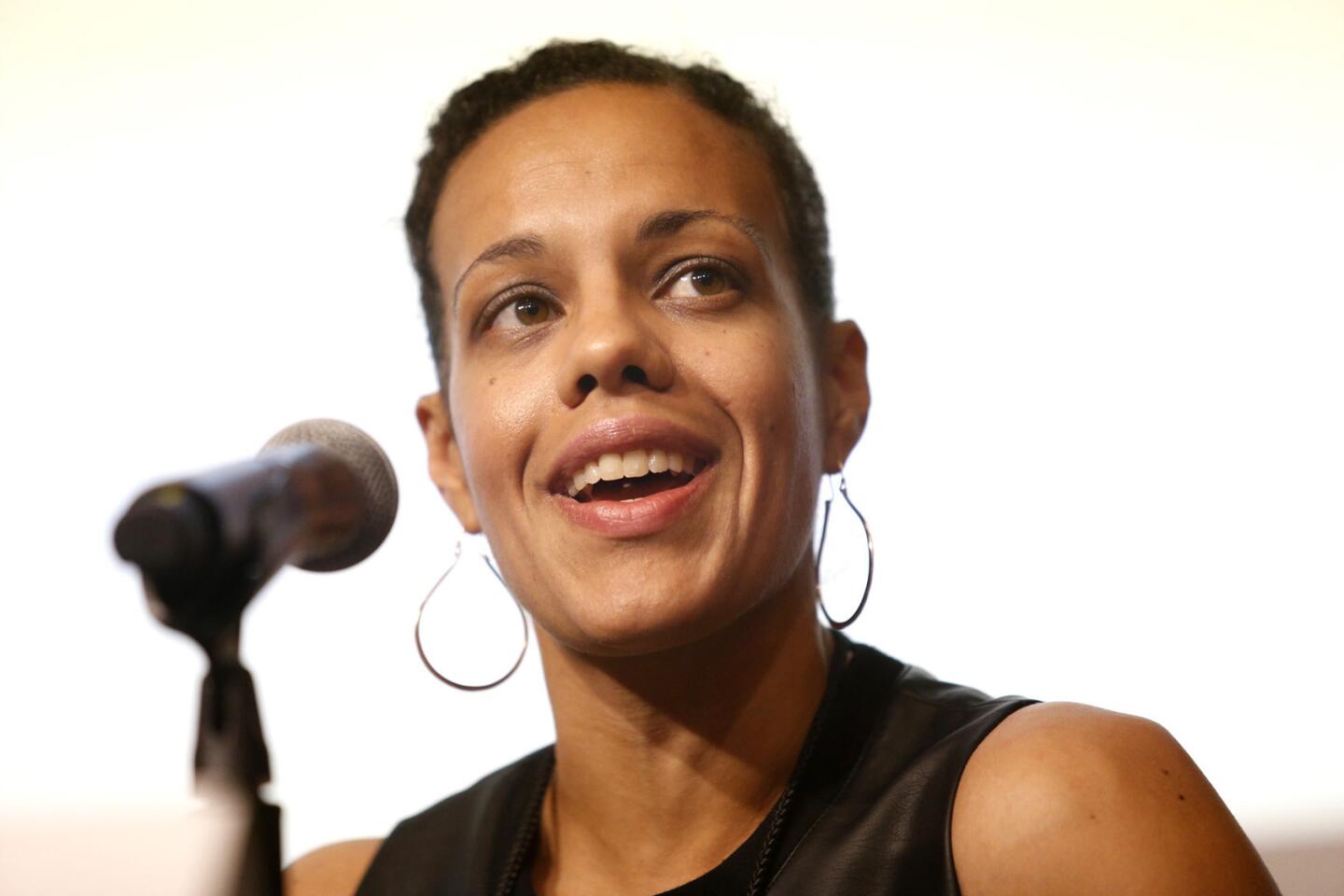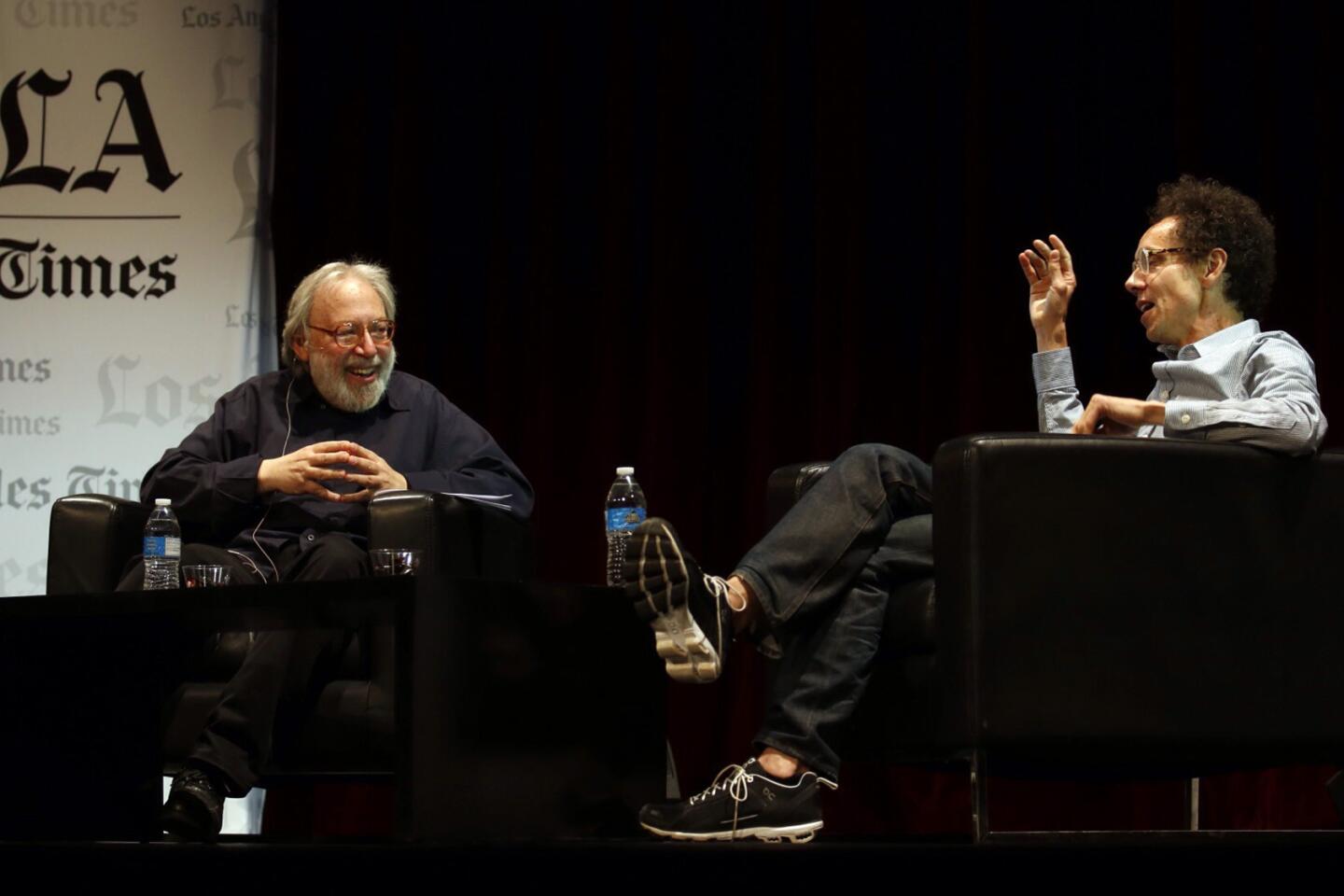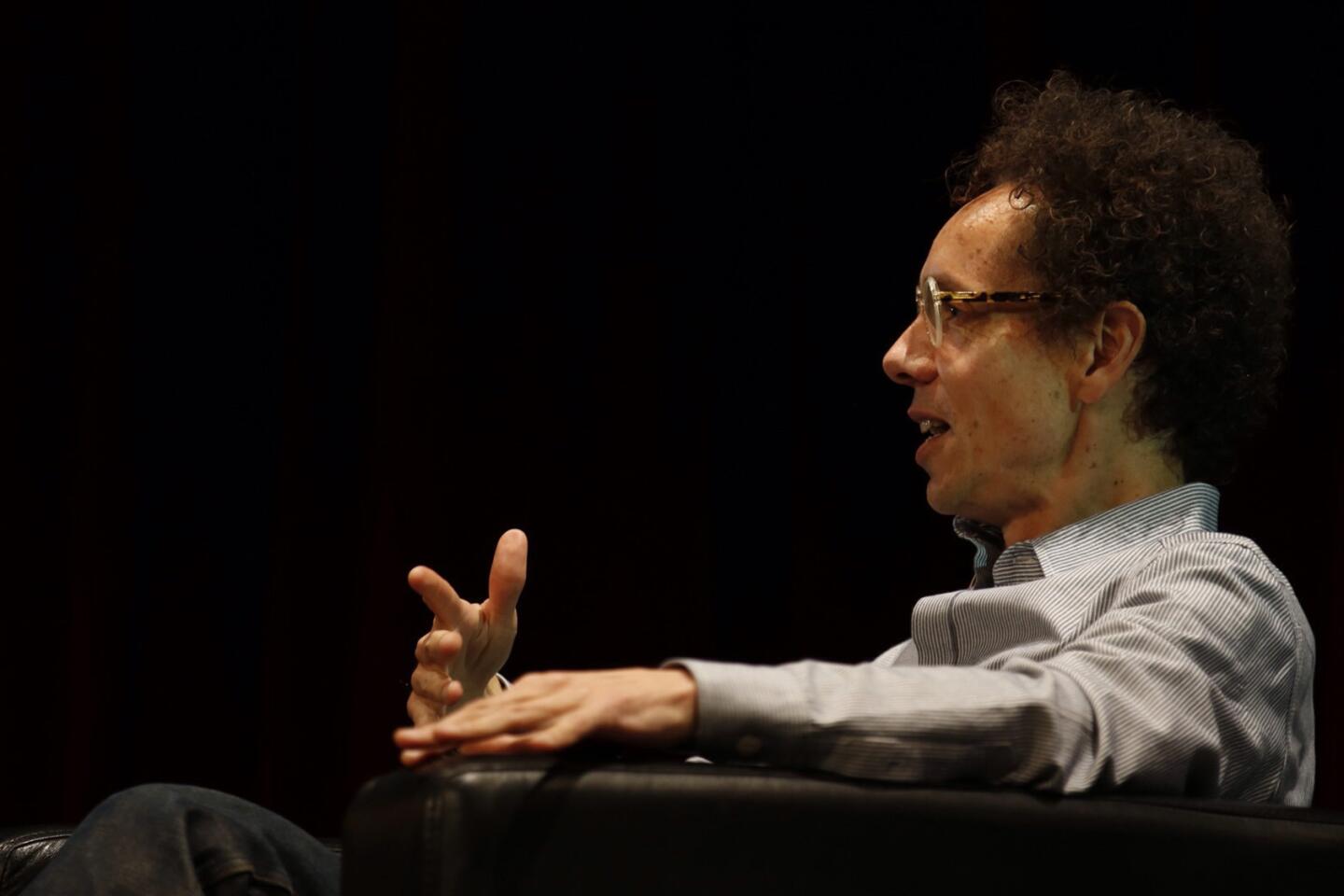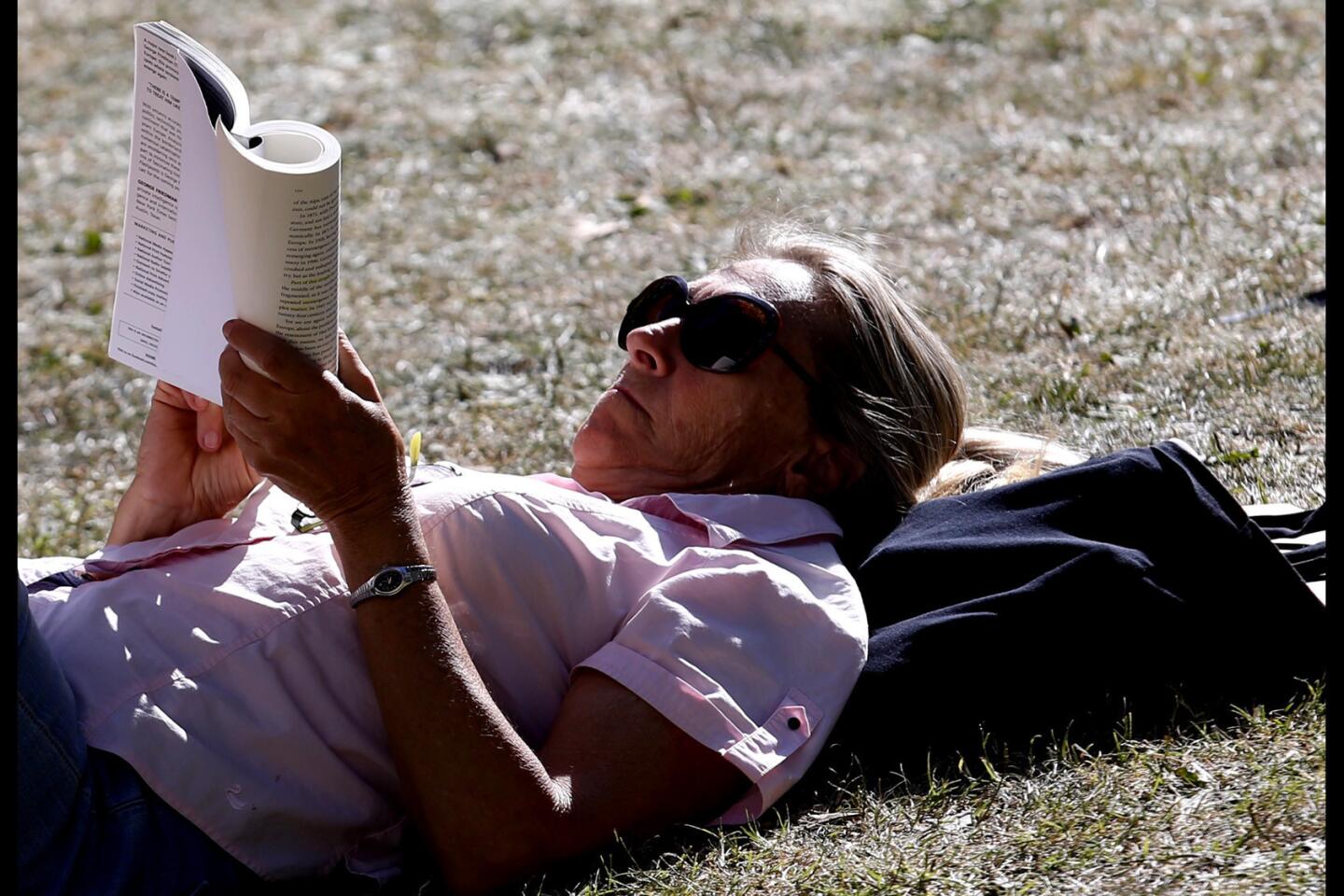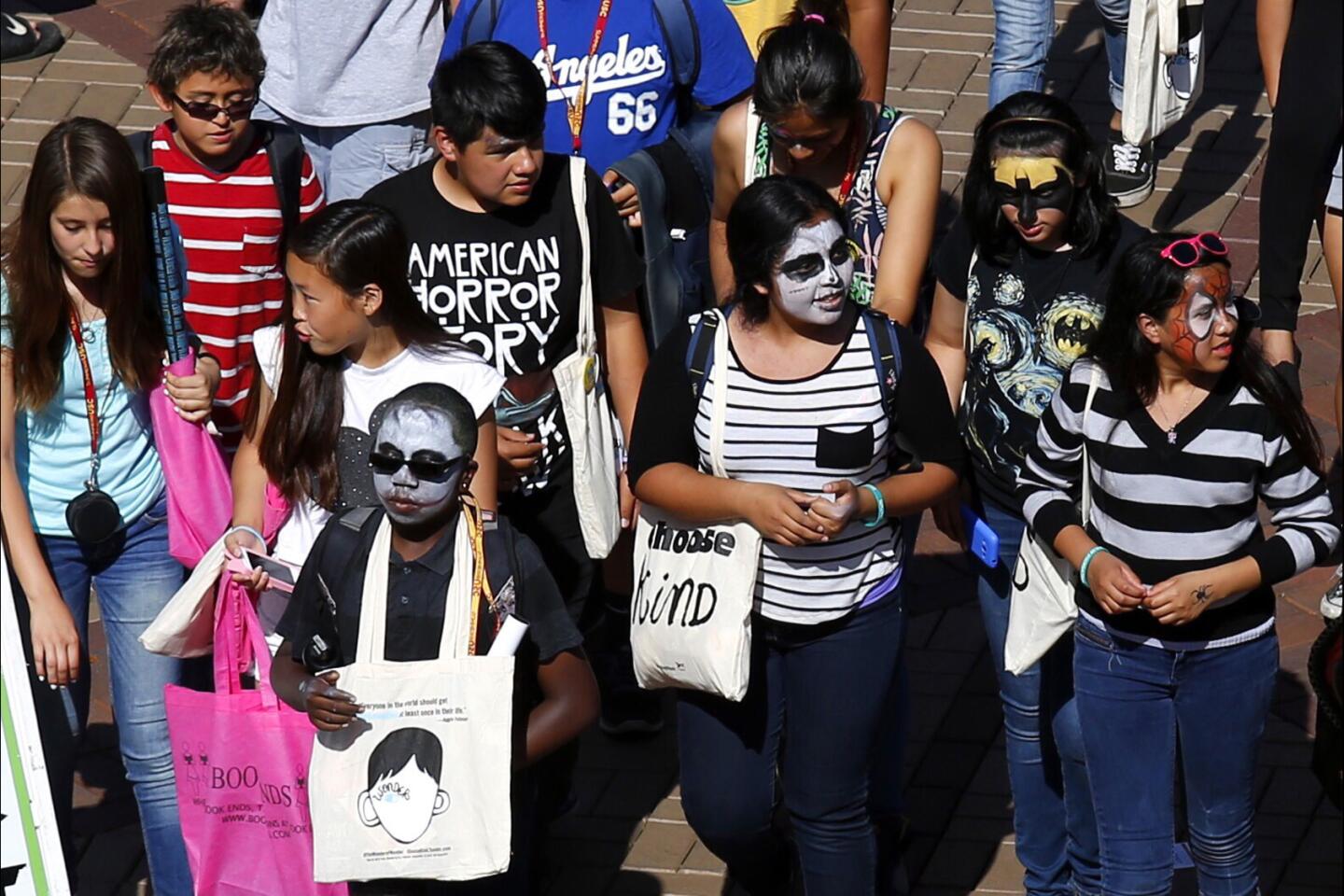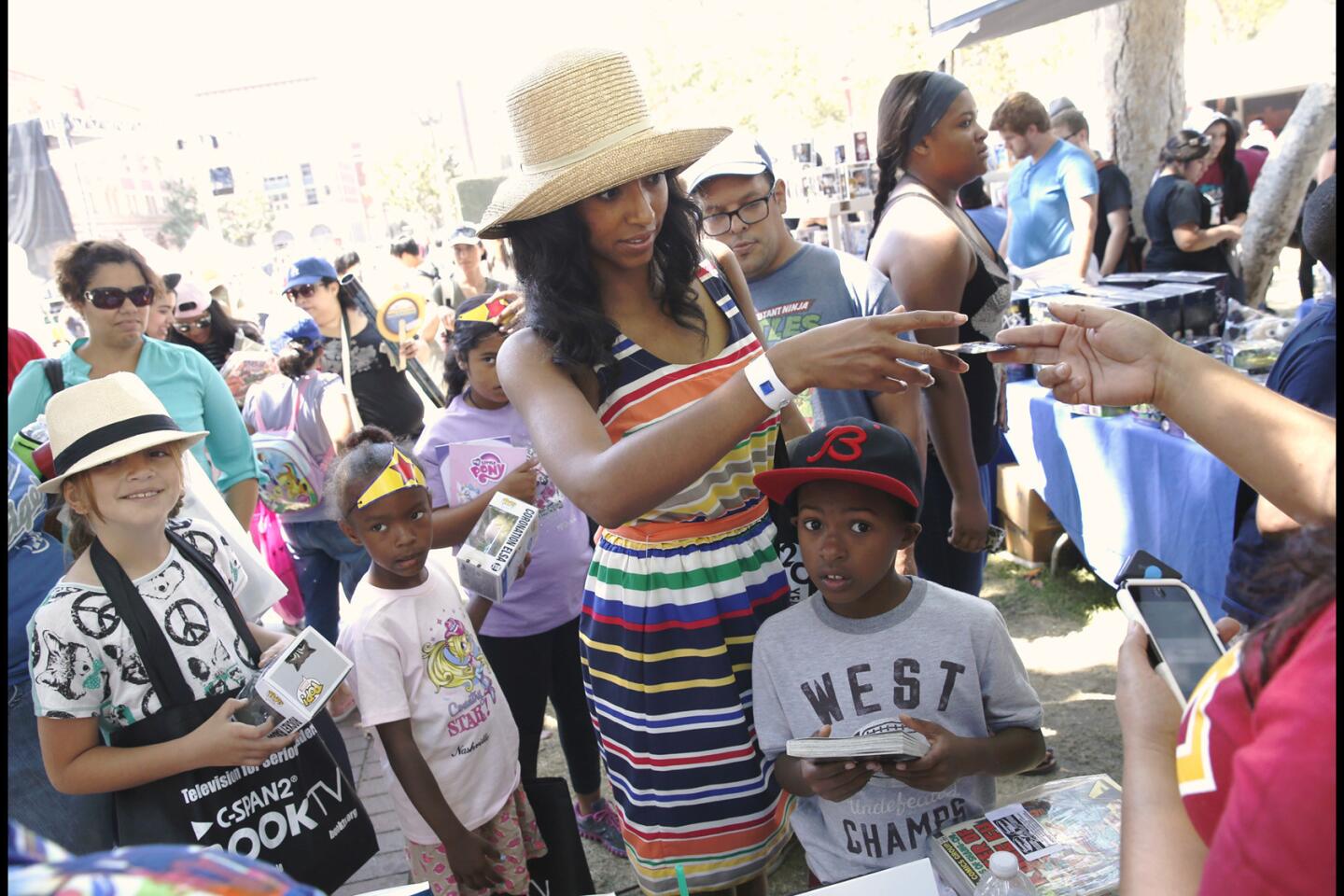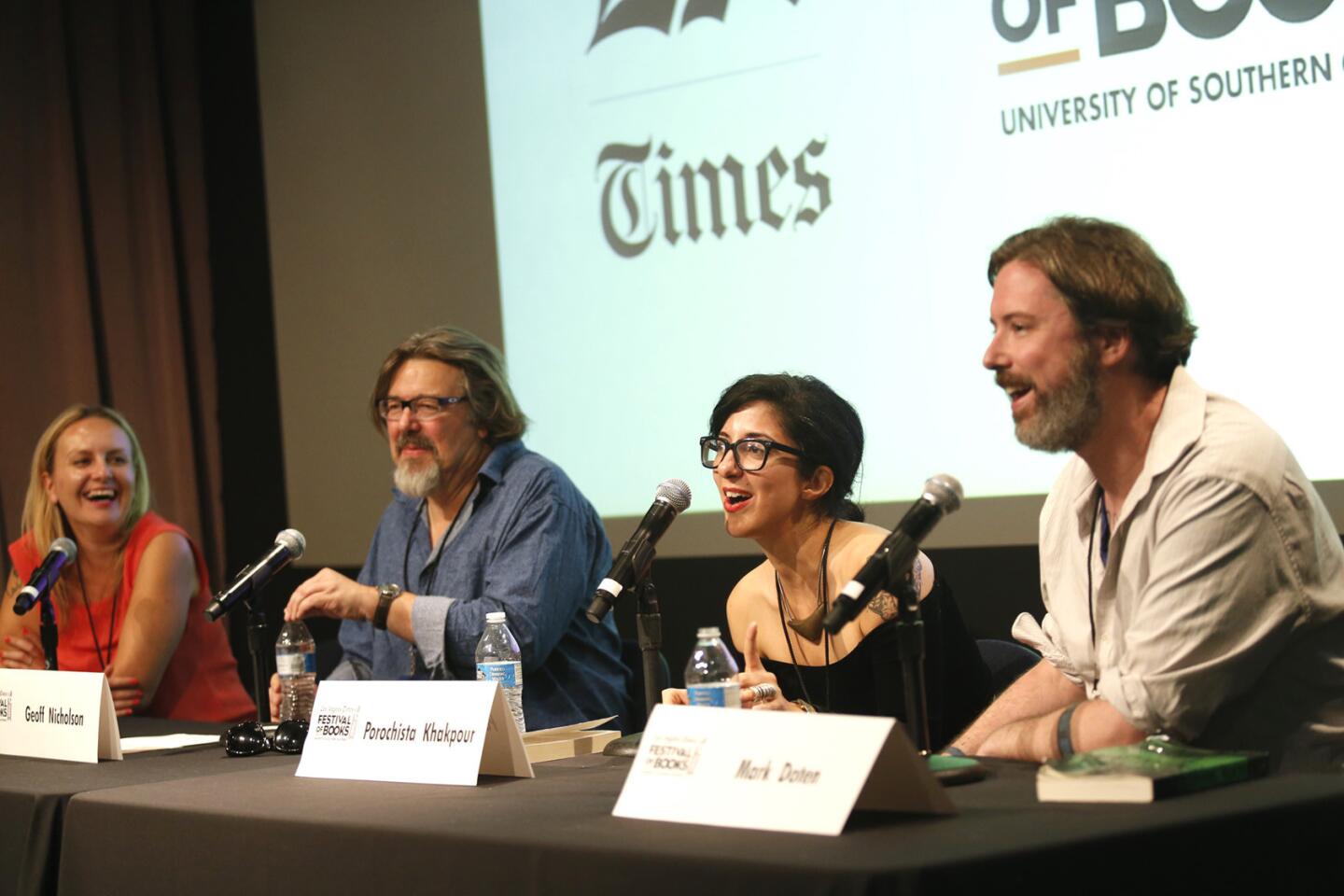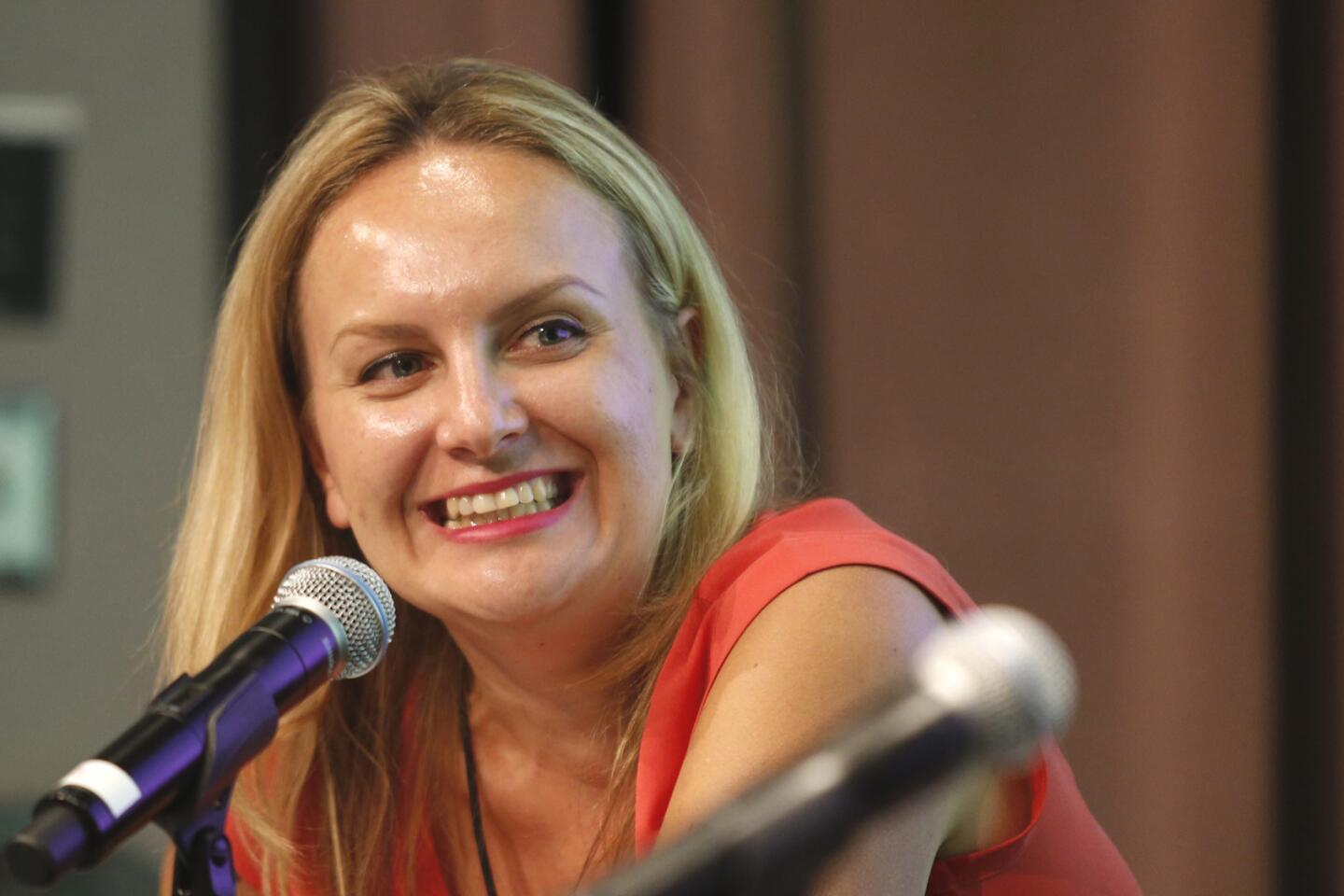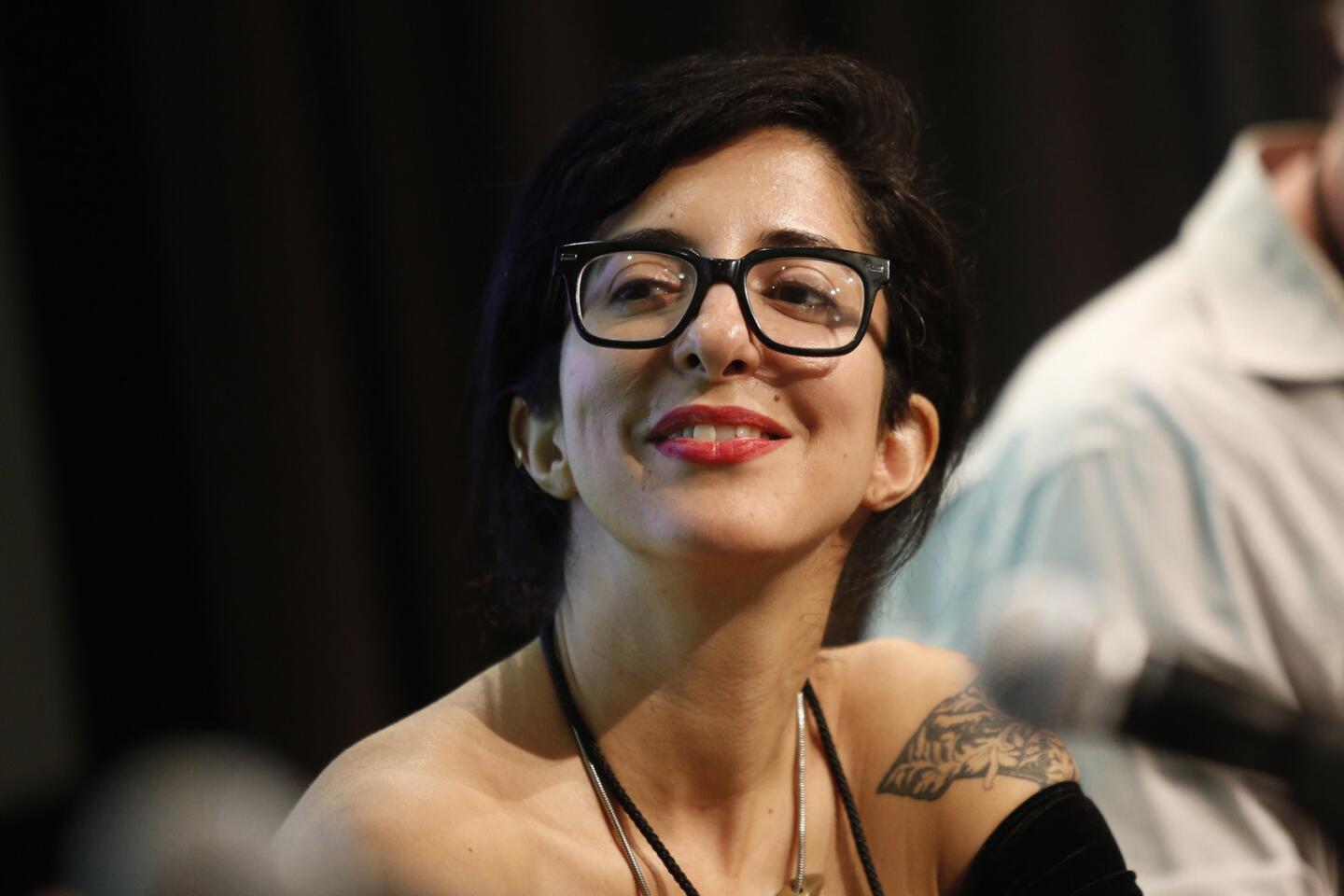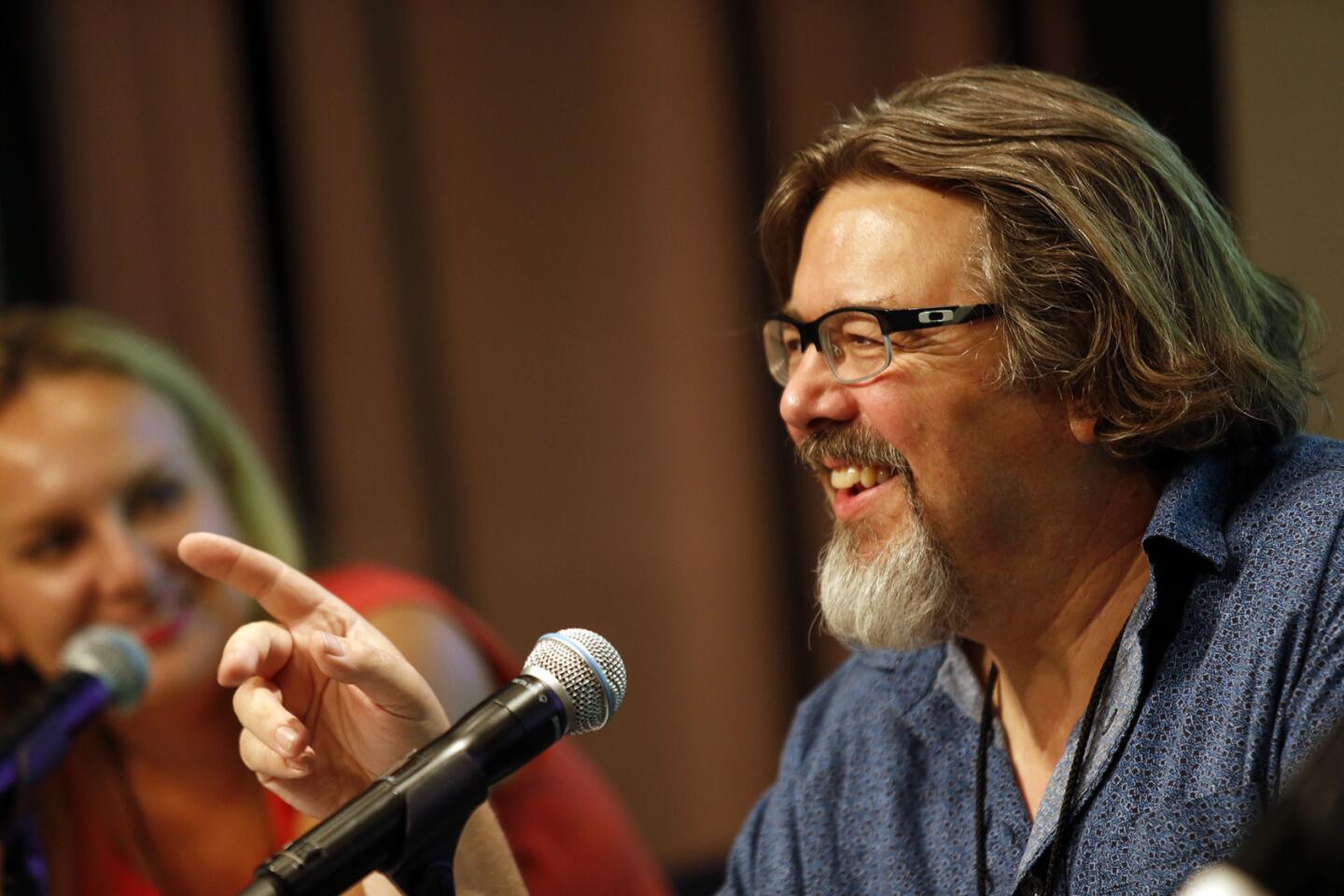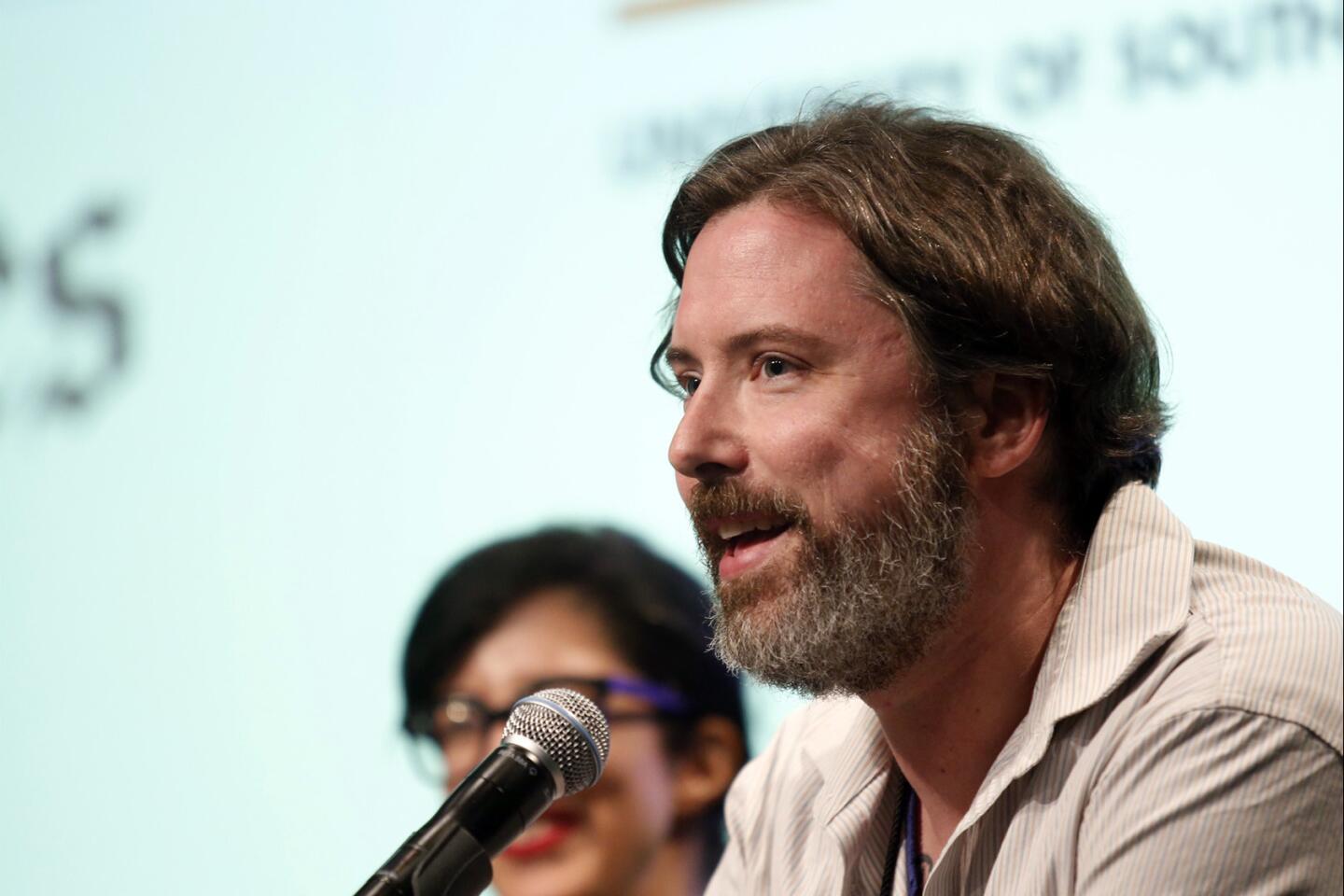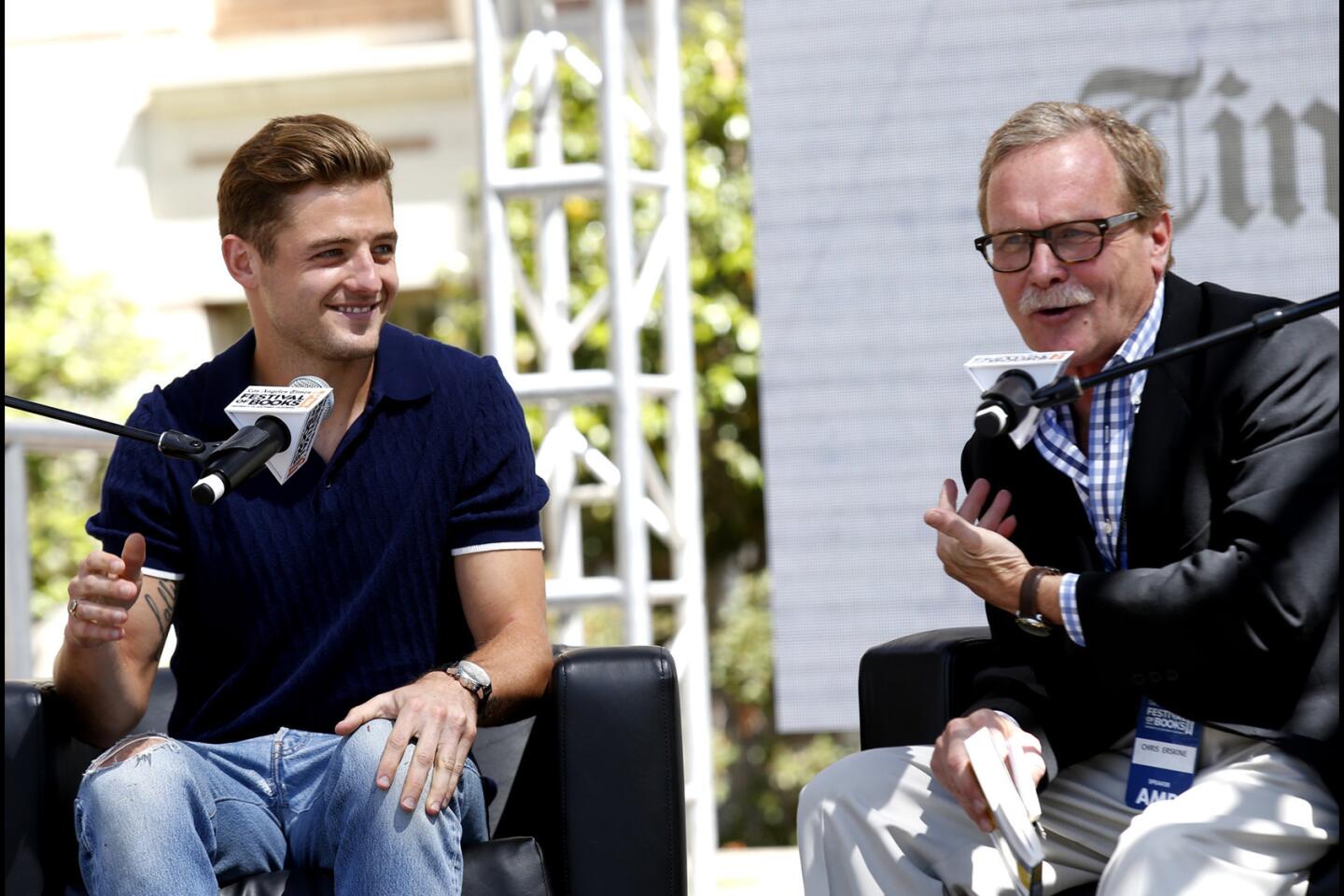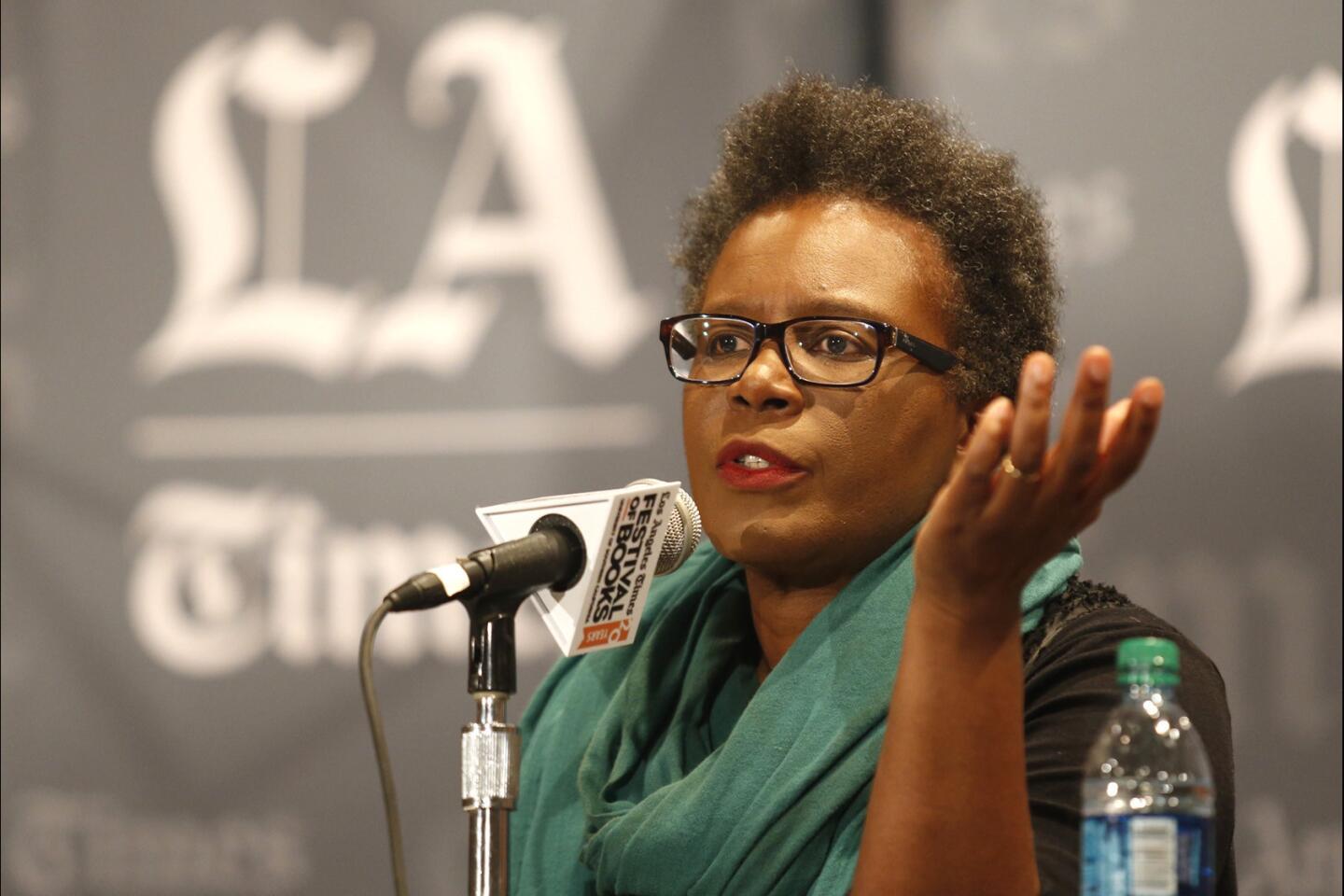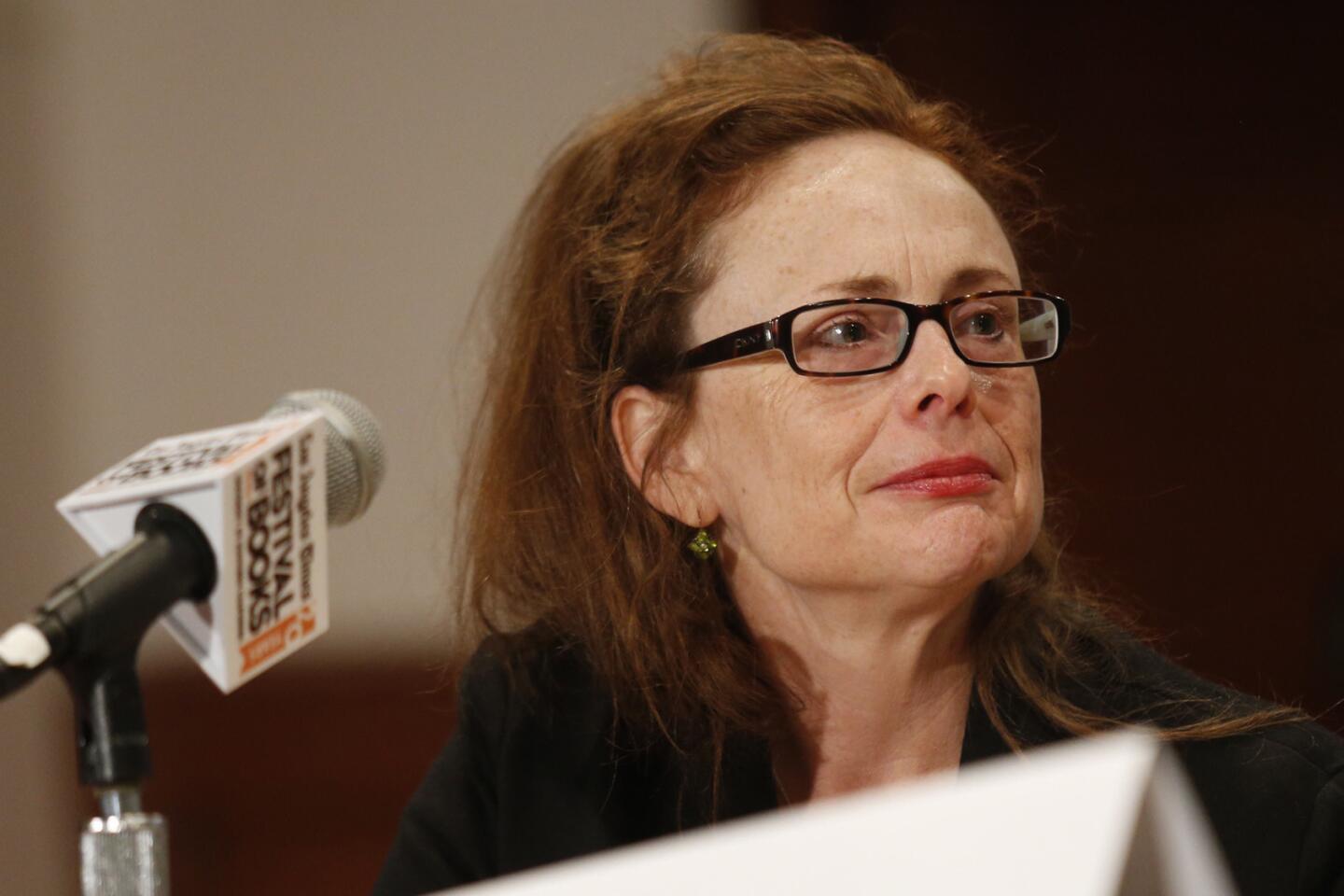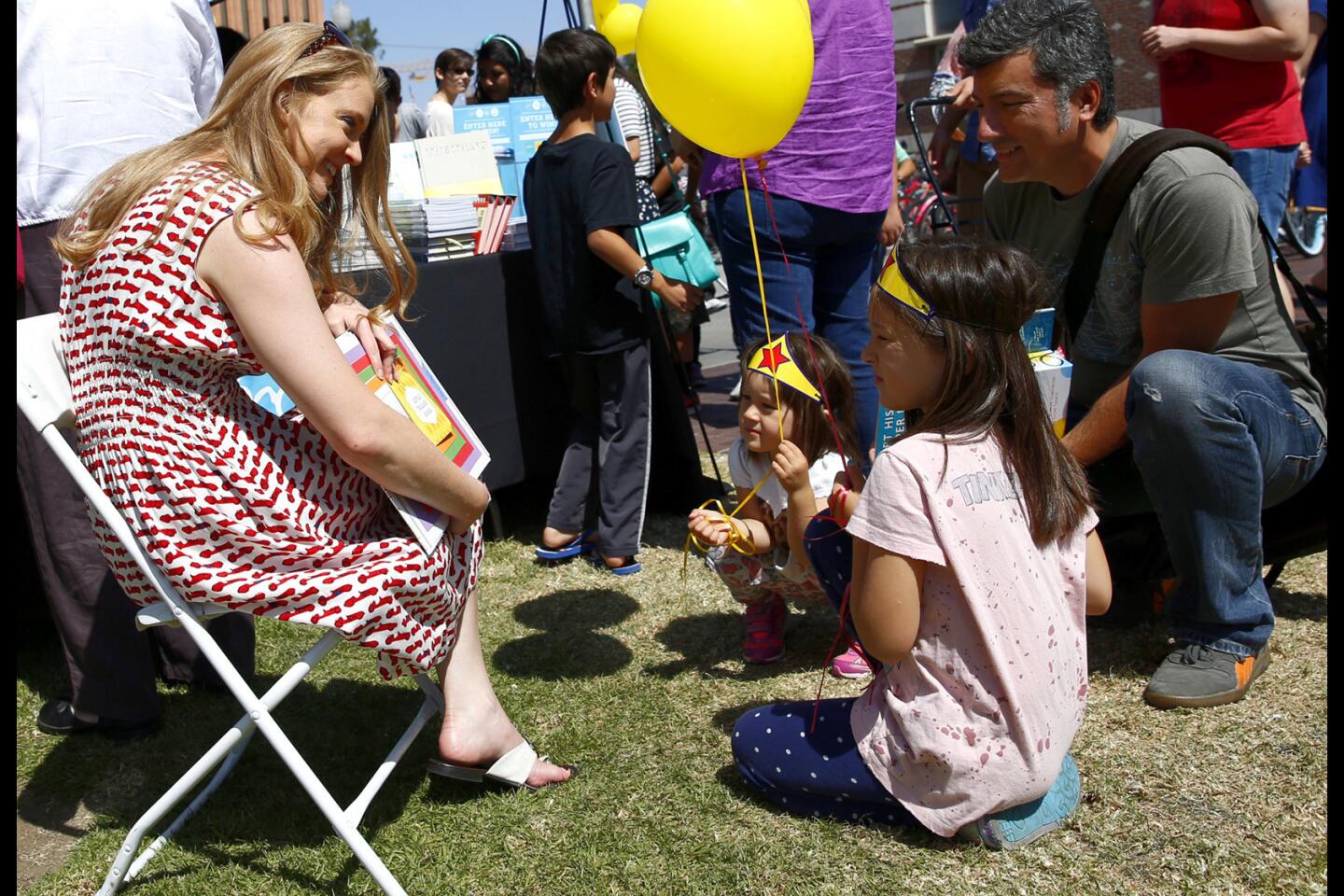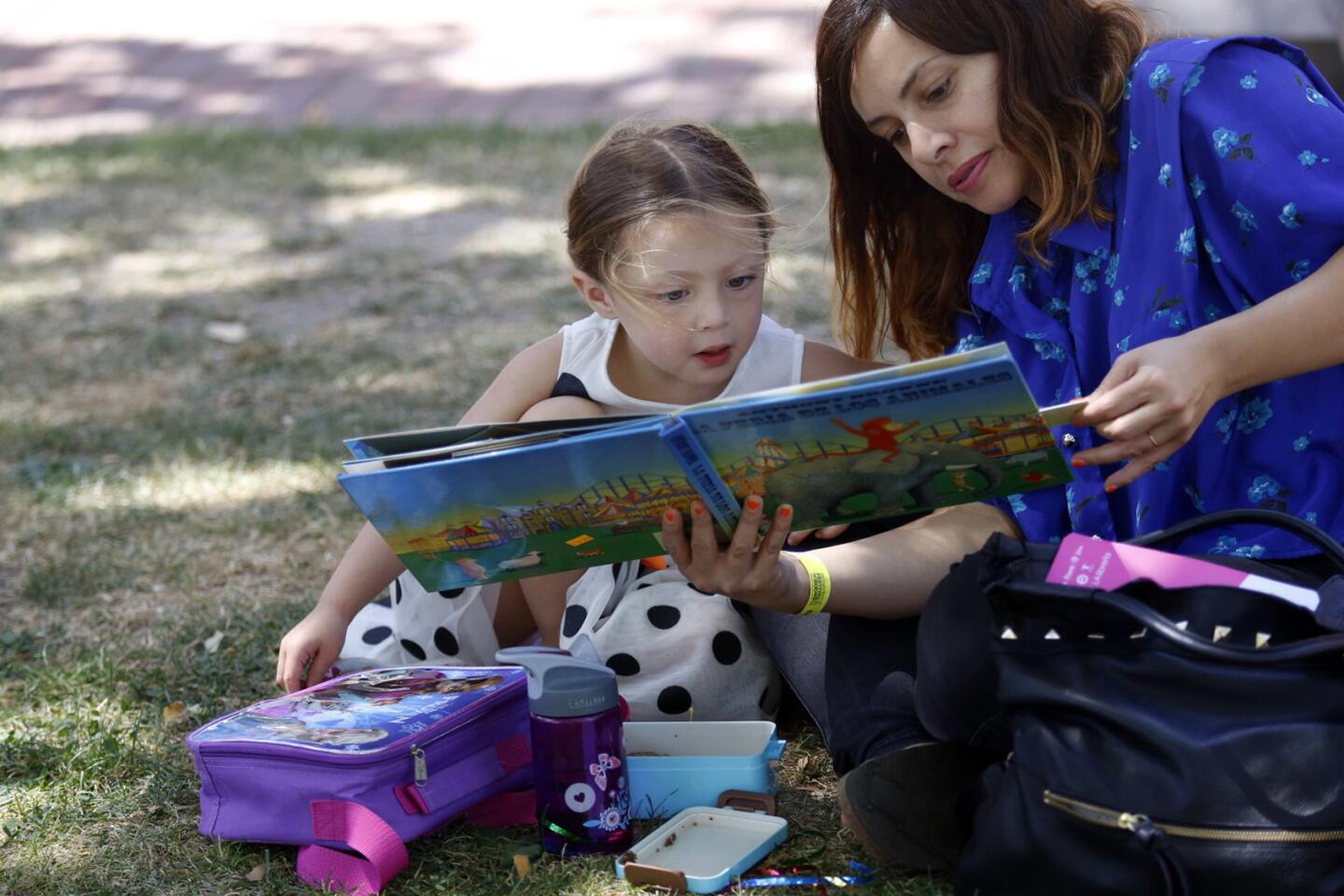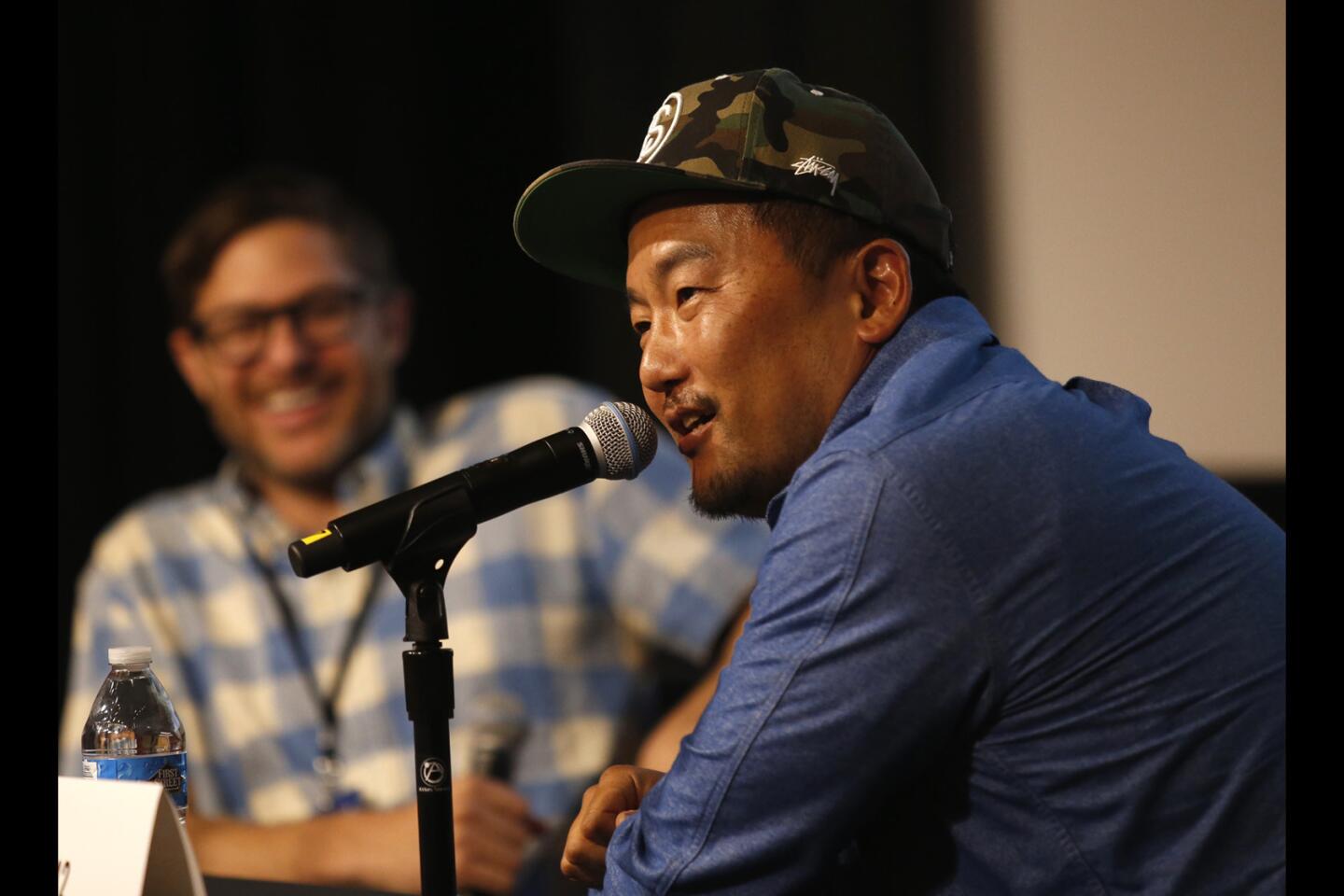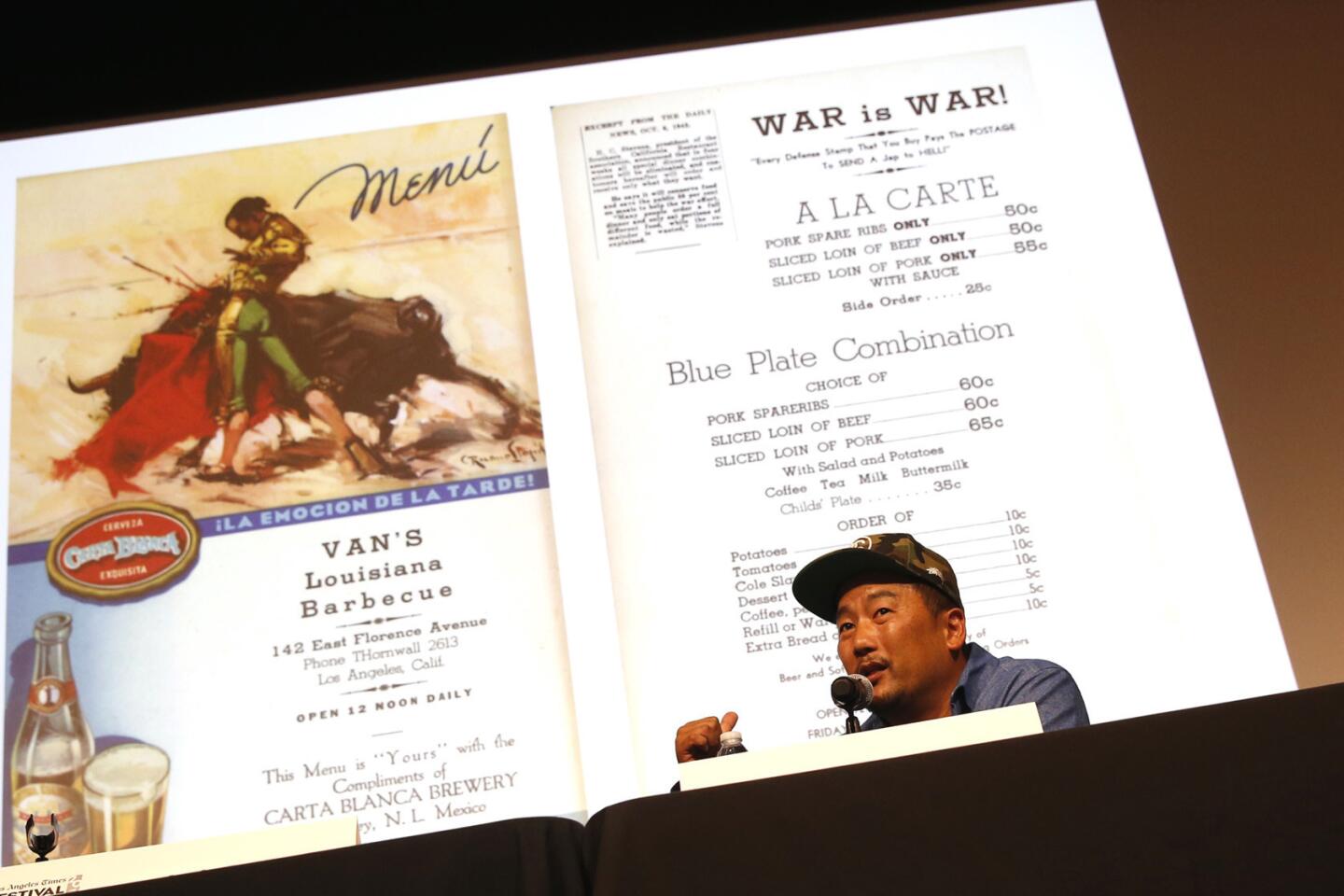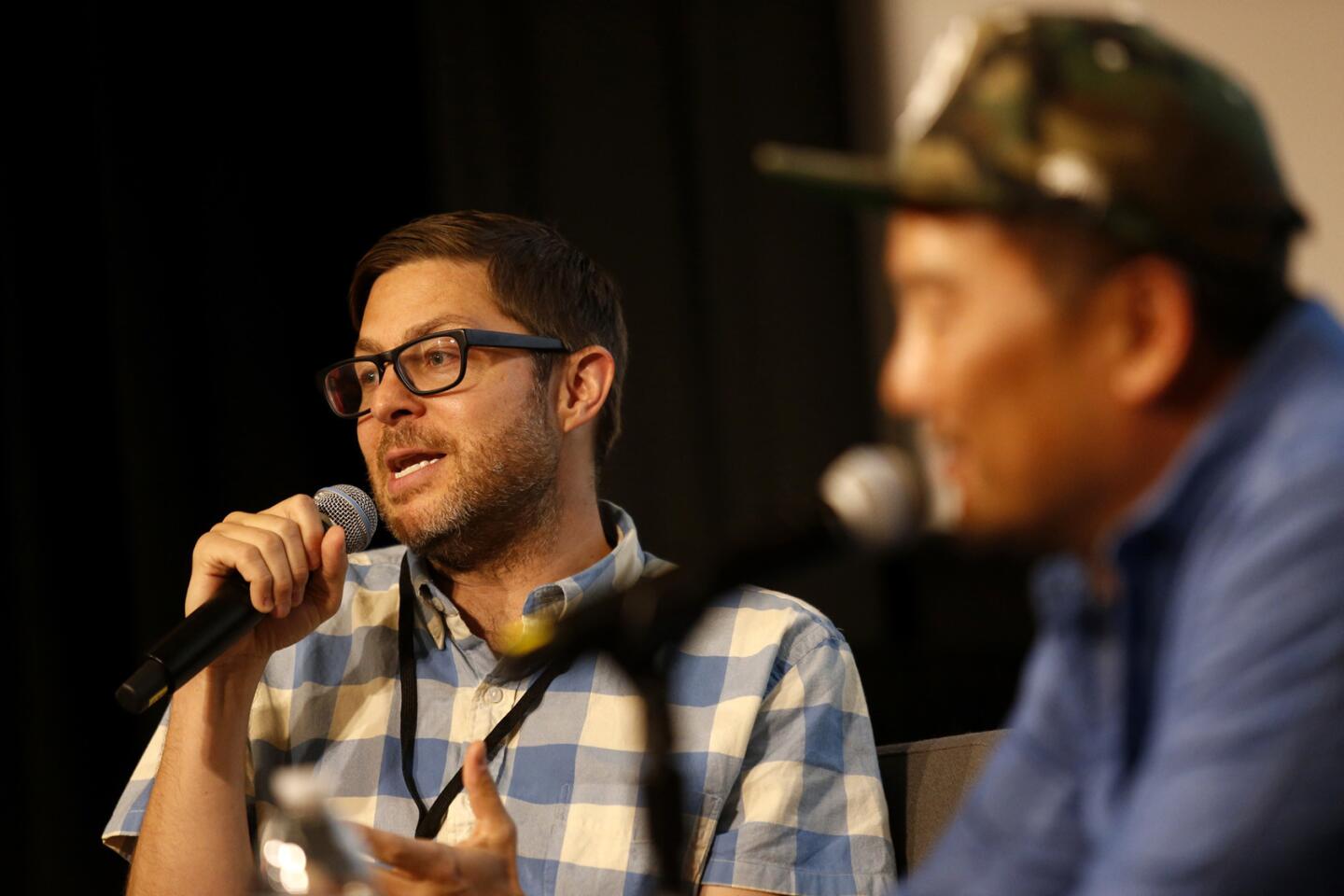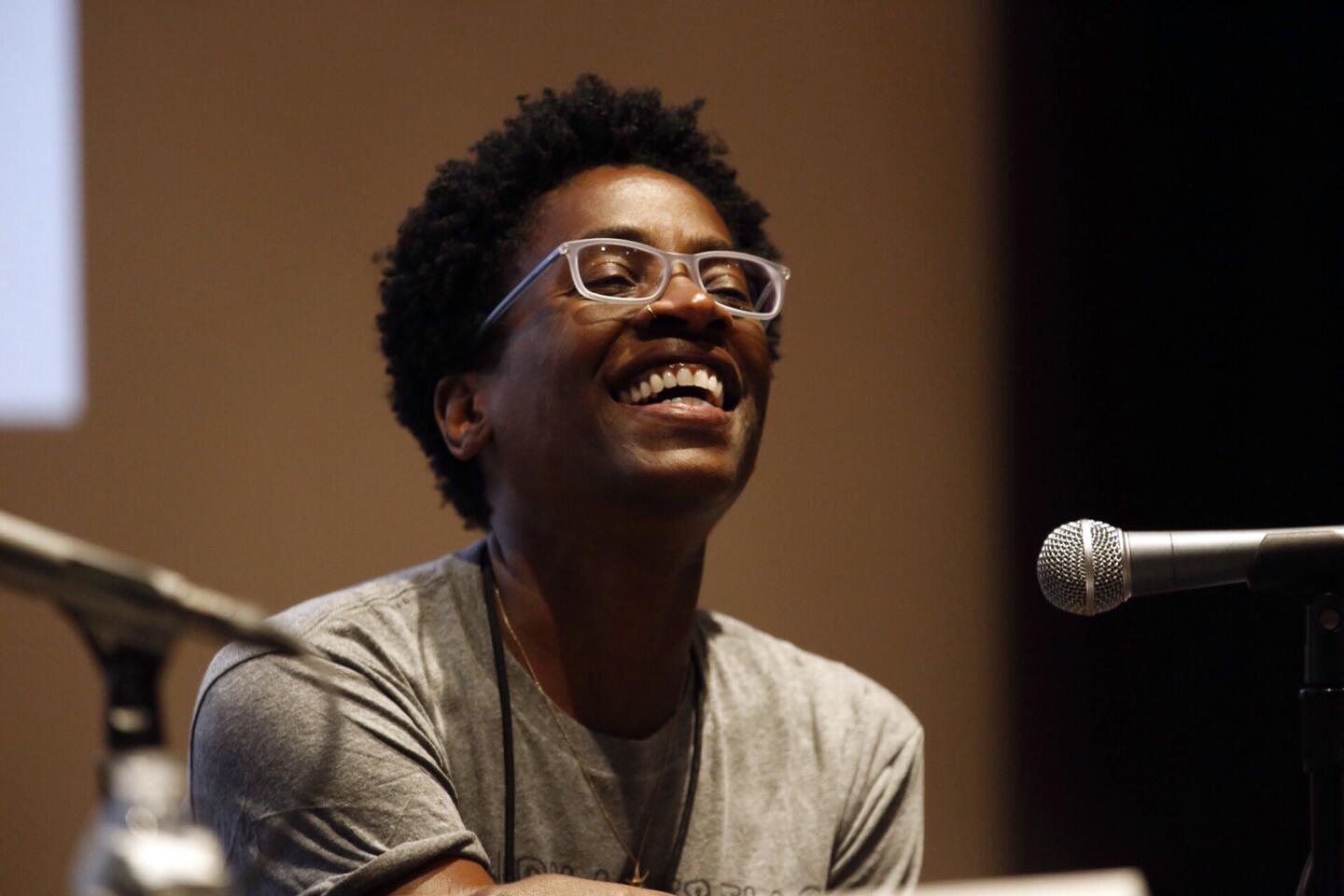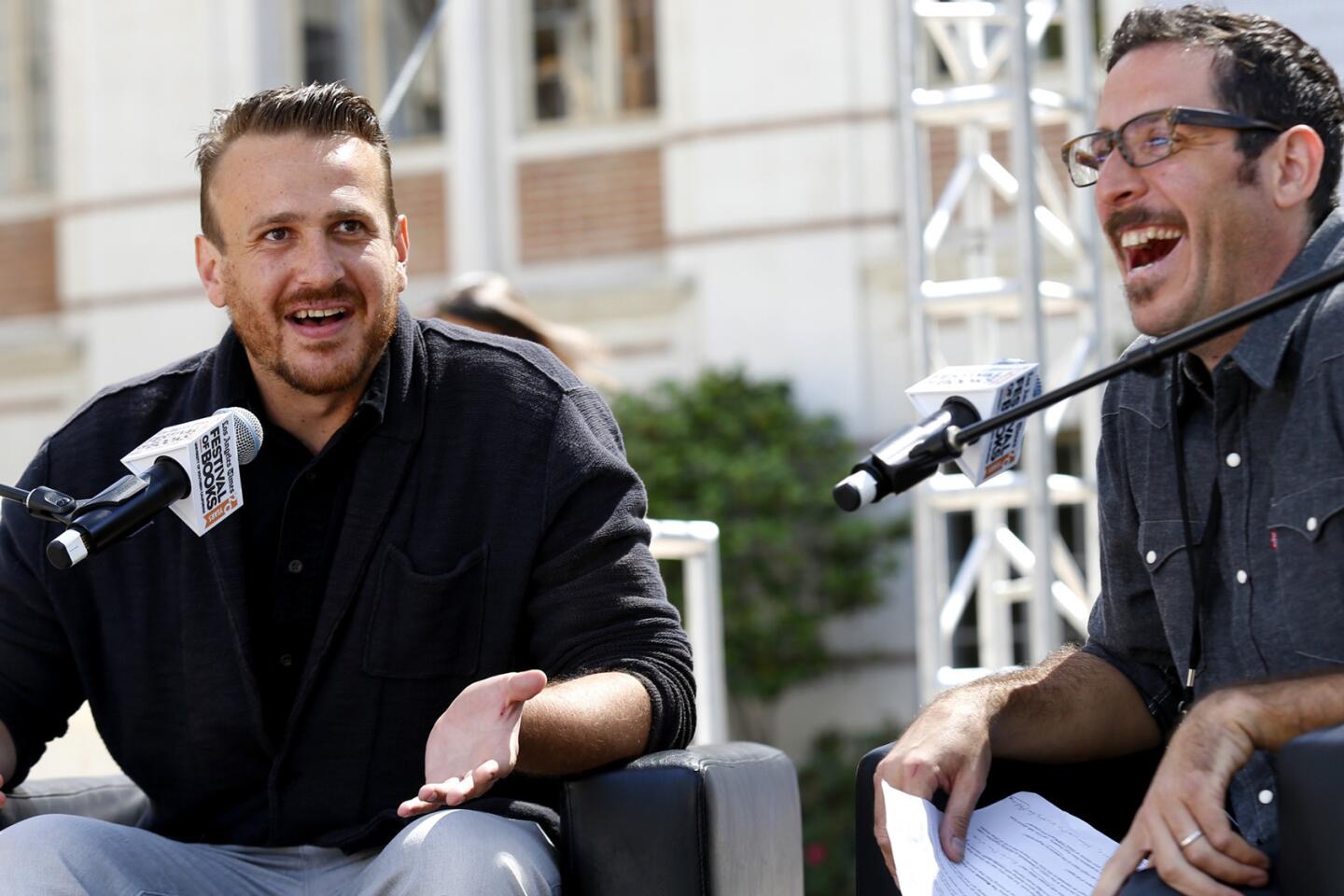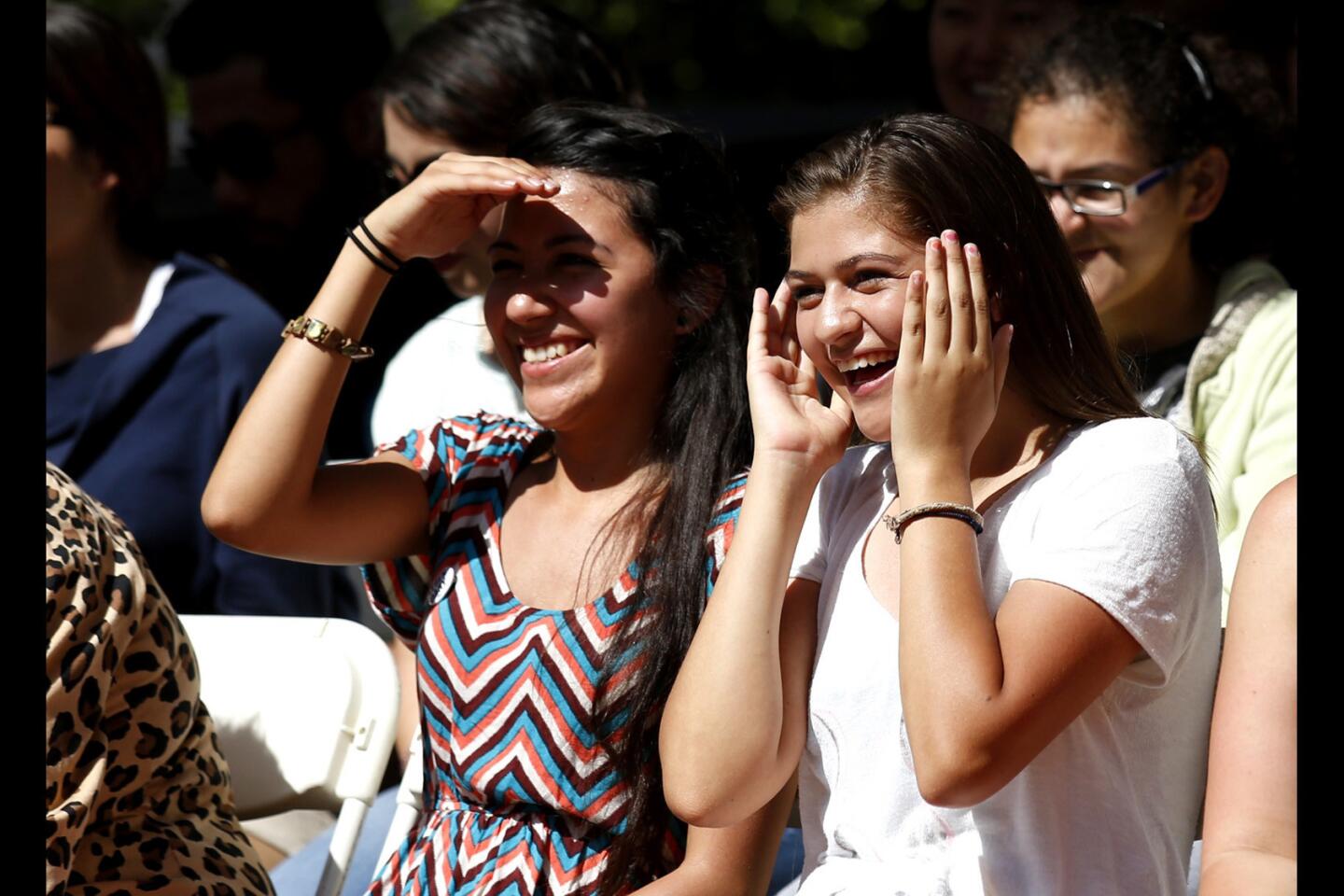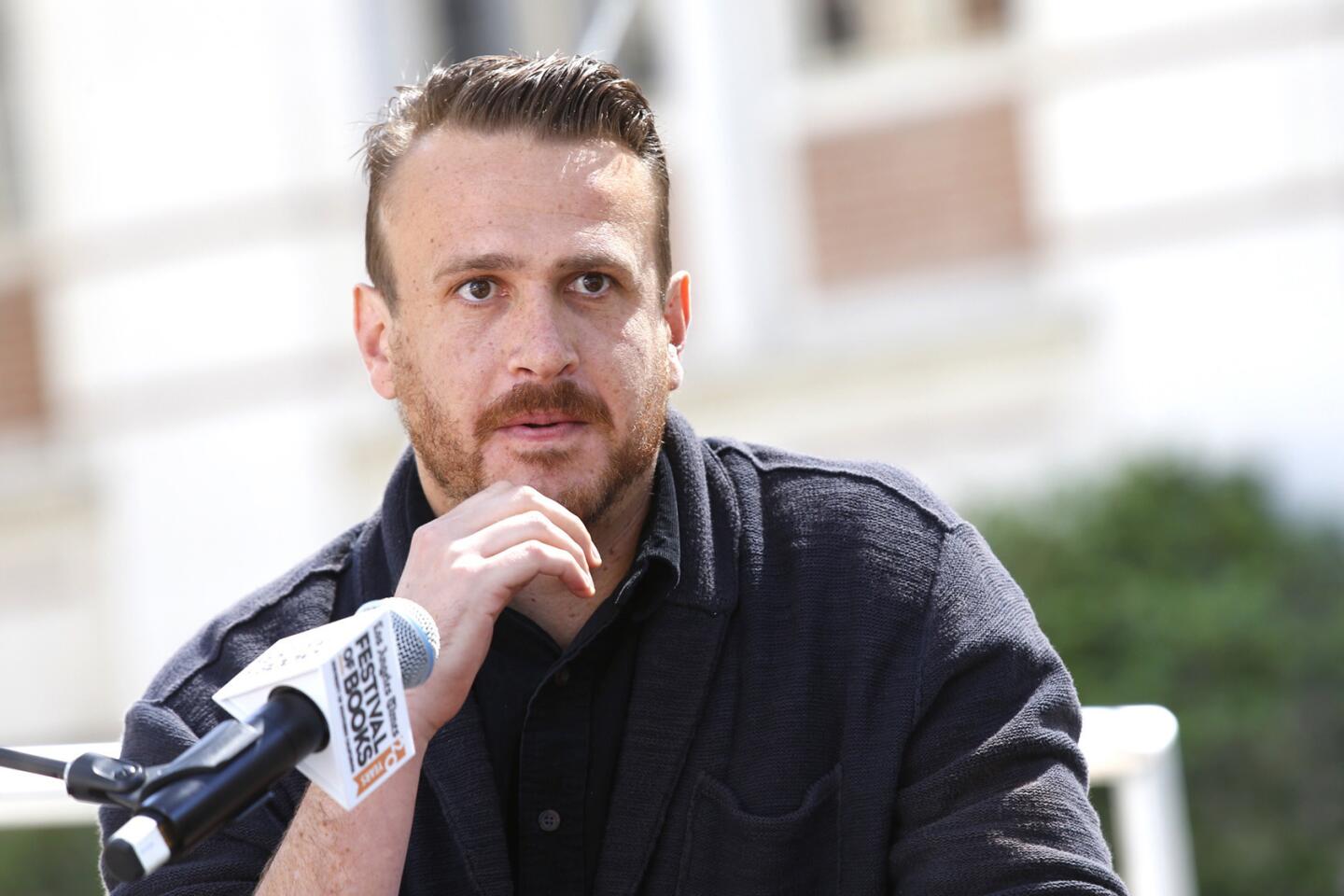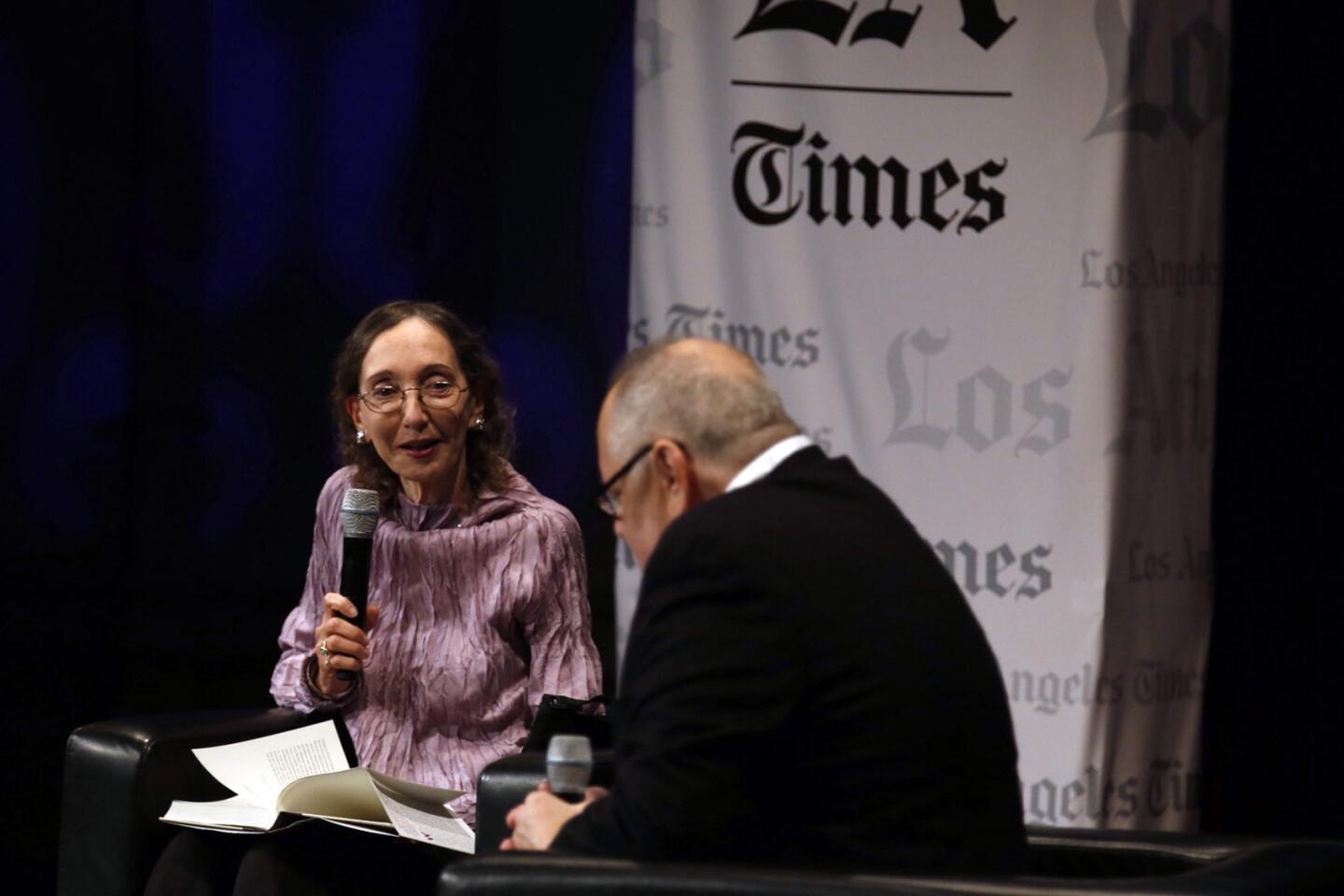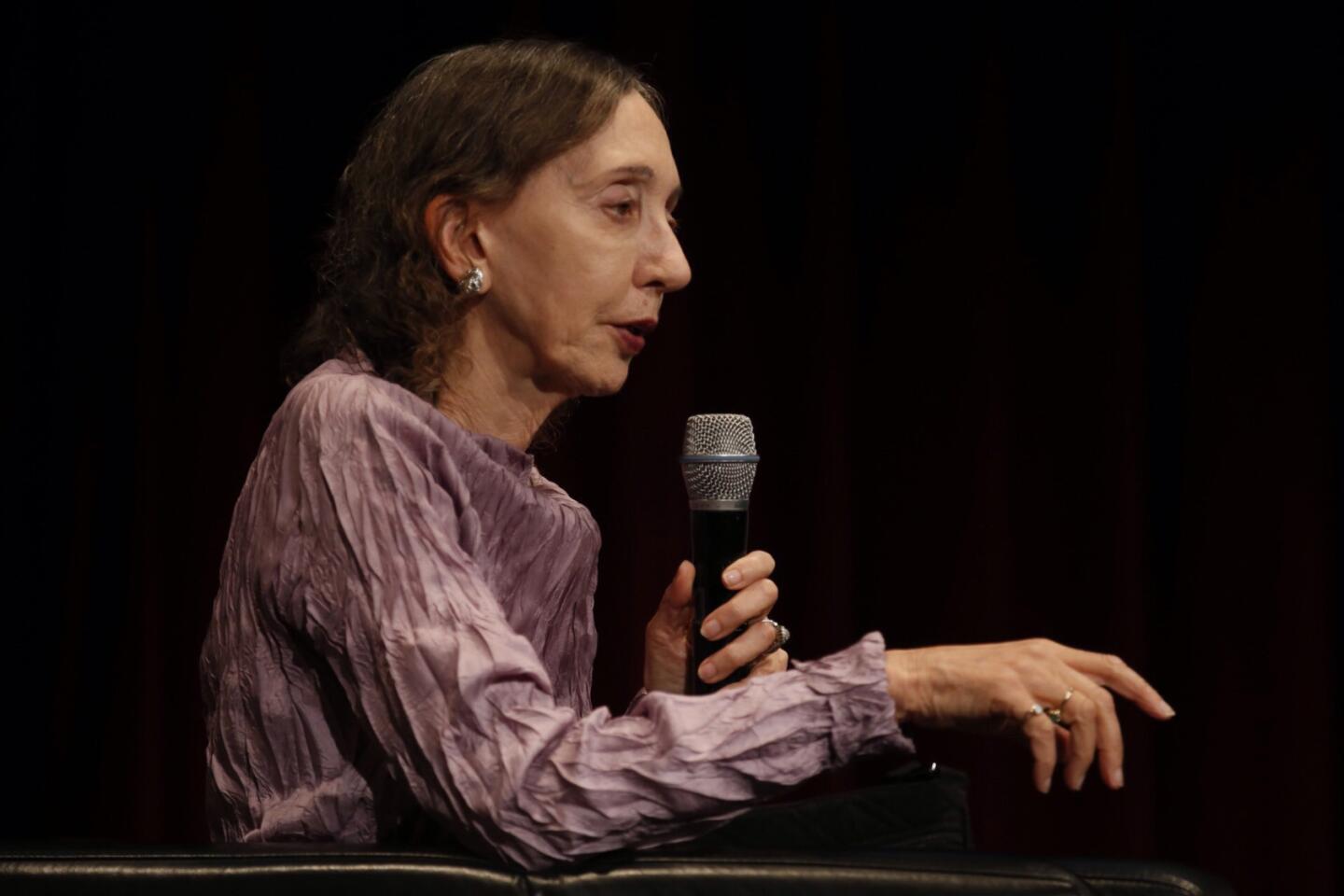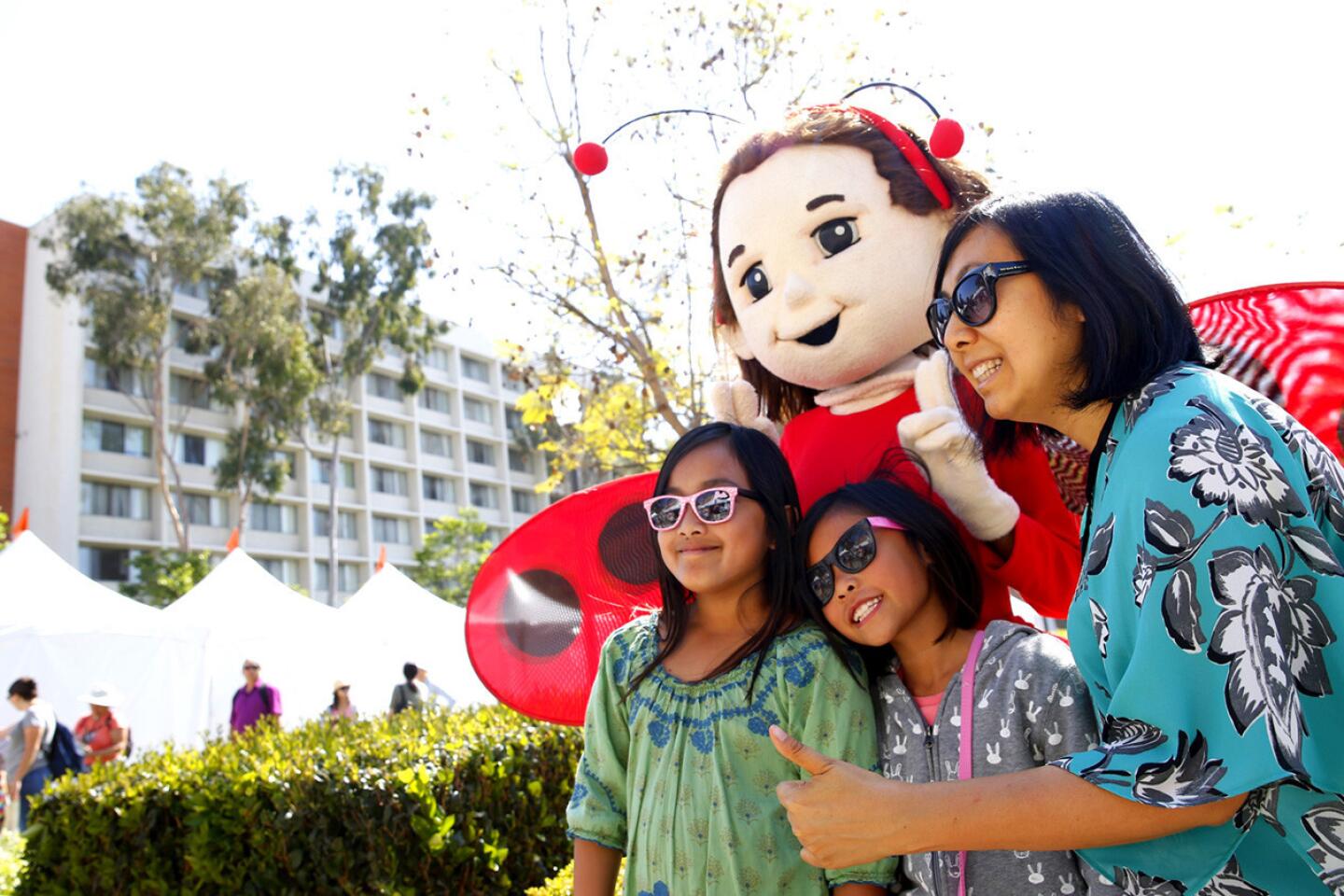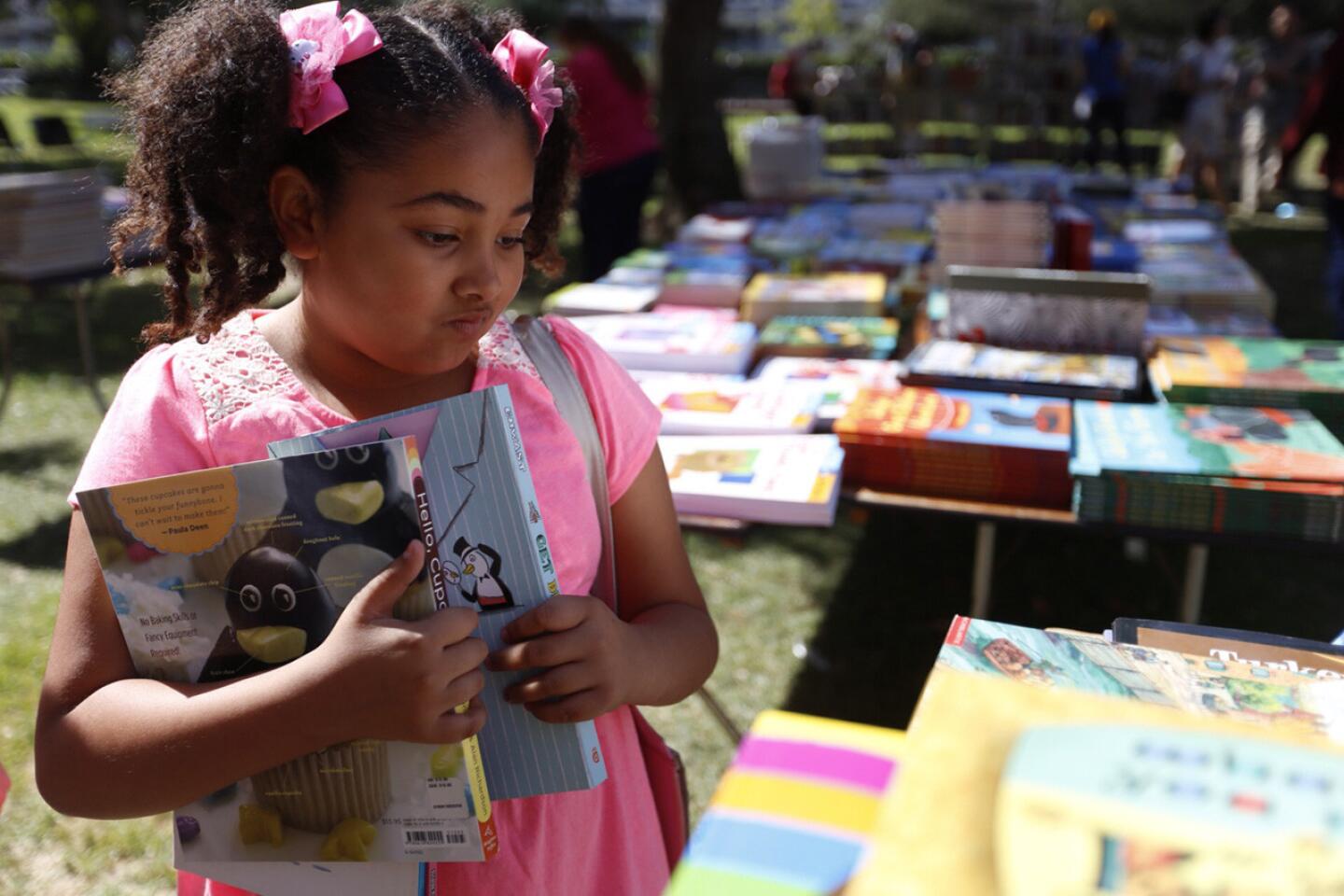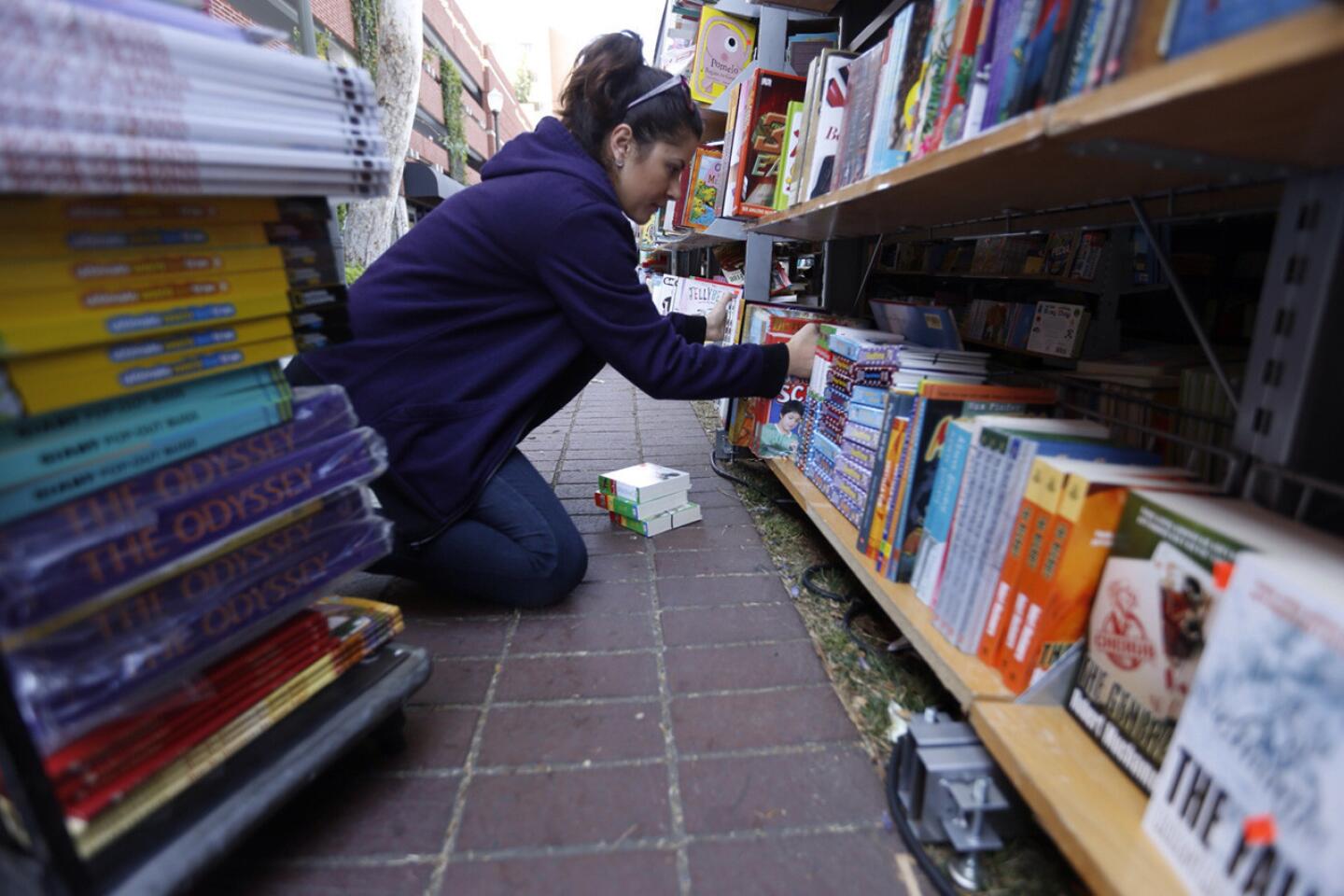Festival of Books: Authors frame the issue of being black in America
- Share via
With recent shootings of unarmed black men by white cops, many people find themselves discussing the status of race in America. At the Los Angeles Times Festival of Books on Sunday, a panel of authors tackled the conversation in a panel titled “Being Black: Race and Justice in the U.S.”
The conversation turned out to be more of a look back at racial attitudes than a response to modern-day events.
“Racism hasn’t changed,” said Terence Fitzgerald, an assistant professor in the School of Social Work at USC and author of “Black Males and Racism: Improving the Schooling and Life Chances of African Americans.”
FULL COVERAGE: FESTIVAL OF BOOKS
“It’s just now more covert. The only difference is us and how we’ve reacted to it.”
Fitzgerald was joined by Robin Coste Lewis, a fellow in poetry and visual studies at USC; Jody David Armour, author of “Negrophobia and Reasonable Racism: The Hidden Costs of Being Black in America”; and Shana Redmond, author of “Anthem: Social Movements and the Sound of Solidarity in the African Diaspora.”
The panelists discussed their books, all of which chronicle elements of social justice for African Americans. Redmond spoke to the musical anthems of social movement.
“Blackness is always negotiated beyond the immediacy of the nation, and music becomes one of those methods to communicate across those borders,” she said.
As for Fitzgerald, his book addresses racial disparities in education, particularly for black males, a narrative he believes is often ignored.
“I hope it brings a voice to the voiceless, gives a name to those who’ve been seen falsely through perceptions that look at us as the other, the deprived, the rapists.”
Amour’s goal in writing his book, particularly the title, was to emphasize the importance and utility of the words people use.
“Words aren’t just entertainment,” he said. “They’re acts with consequences.”
MORE FROM THE FESTIVAL OF BOOKS:
Why Claudia Rankine’s book on racism has no ending
How hashtags become powerful tools of social change
Why Jacqueline Woodson used poetry in ‘Brown Girl Dreaming’
Follow the books section on Twitter @latimesbooks and Facebook.
More to Read
Sign up for our Book Club newsletter
Get the latest news, events and more from the Los Angeles Times Book Club, and help us get L.A. reading and talking.
You may occasionally receive promotional content from the Los Angeles Times.

